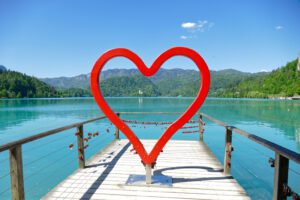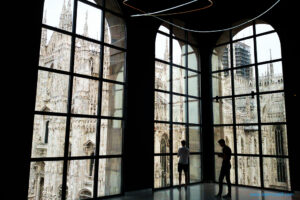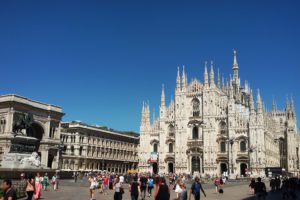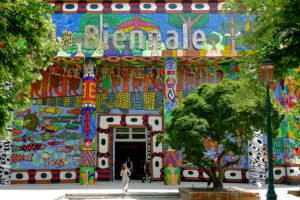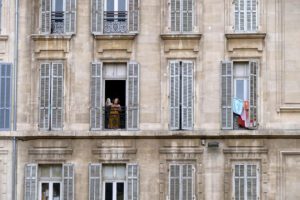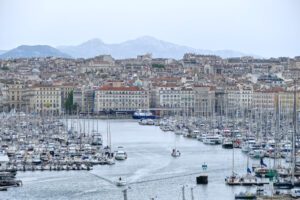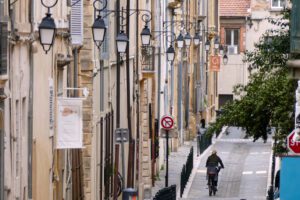Follow my guide to Riga, Latvia’s entrancing capital. Although Riga is a modern and forward-looking metropolis, Latvia’s capital preserves proudly its cultural identity, traditions, and melancholic charm.
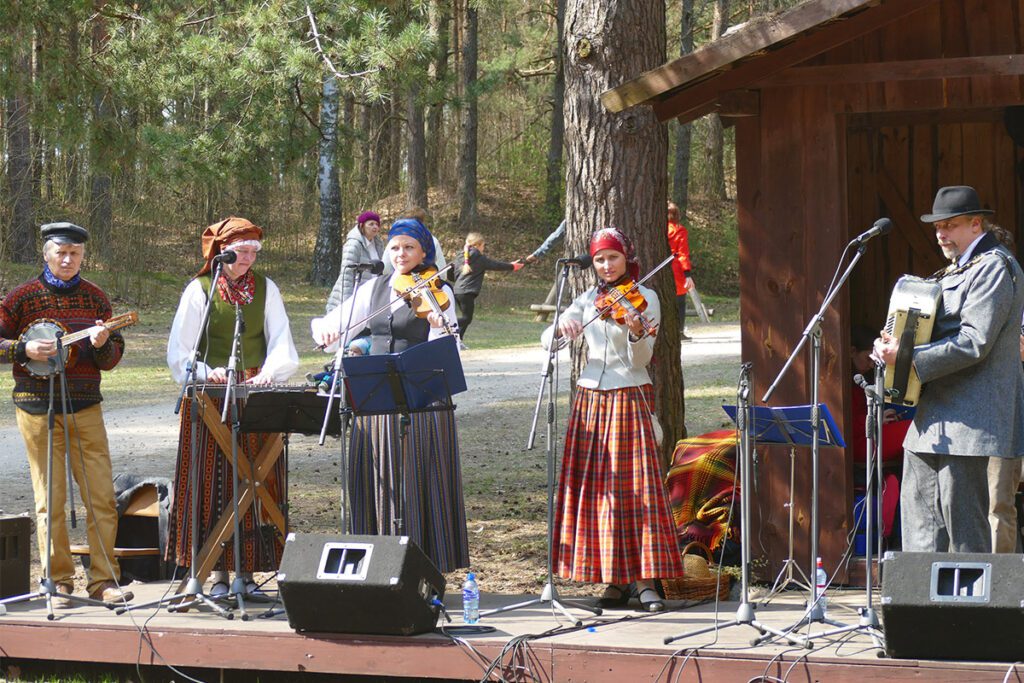
At this moment, the Baltic states are in some sort of touristy limbo: Certainly not an insider tip anymore, Latvia is still far from being overrun by large tourist groups.
New Shores
Since Latvia, together with the other Baltic states Lithuania and Estonia, was part of the Soviet Union till 1991, these states stagnated pretty much unnoticed by the western world behind the iron curtain.
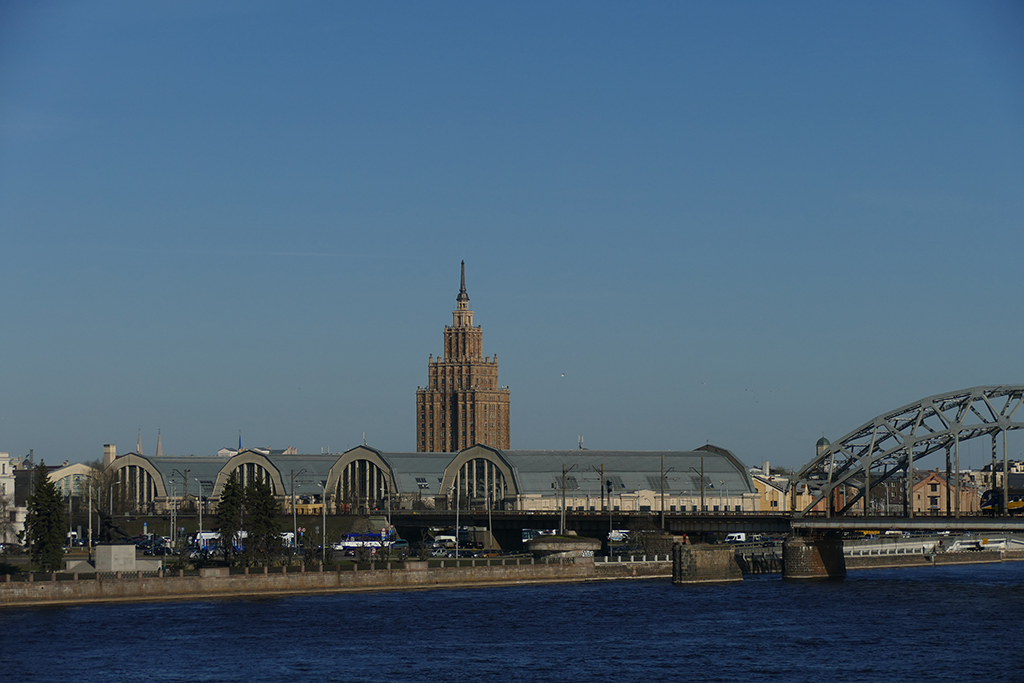
For the longest time, I had never heard of anybody travelling to one of these young republics – despite the fact that they had joined the European Union in 2004. During the first years after their independence, I even wasn’t always sure which capital belonged to which country.
In 2016, however, I spent two weeks in Milan learning Italian. Although most of my classmates were aspiring artists from China who were learning Italian to study in Venice, Florence, or Turin, there were also some middle-aged students from the Baltics. All of them were highly educated professionals working for the European Union or other prestigious institutions.
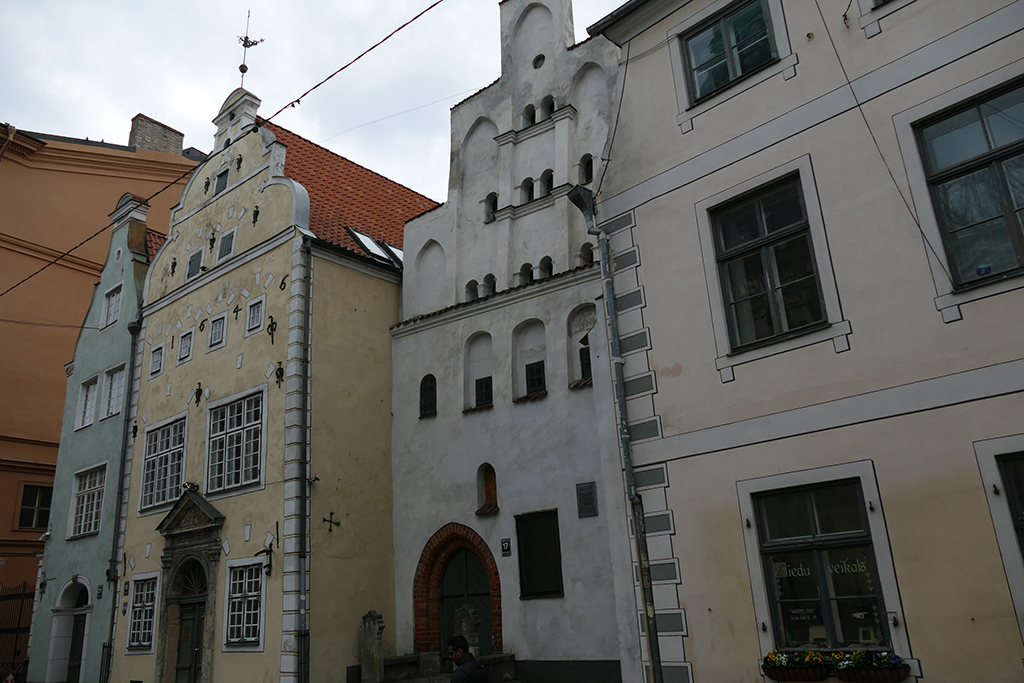
They were proof of how much there was going on in the Baltic countries that are still overshadowed by the prepotential Western European states.
Arrival in Riga
It’s Wednesday before Easter when we board air baltic flight BT254 to Riga, Latvia’s entrancing capital and with around 700,000 inhabitants the largest city in the Baltic region.
We caught an evening flight and with the time lag, we lose an additional hour so we just crash as we get to our apartment, located halfway between the airport and the city center.
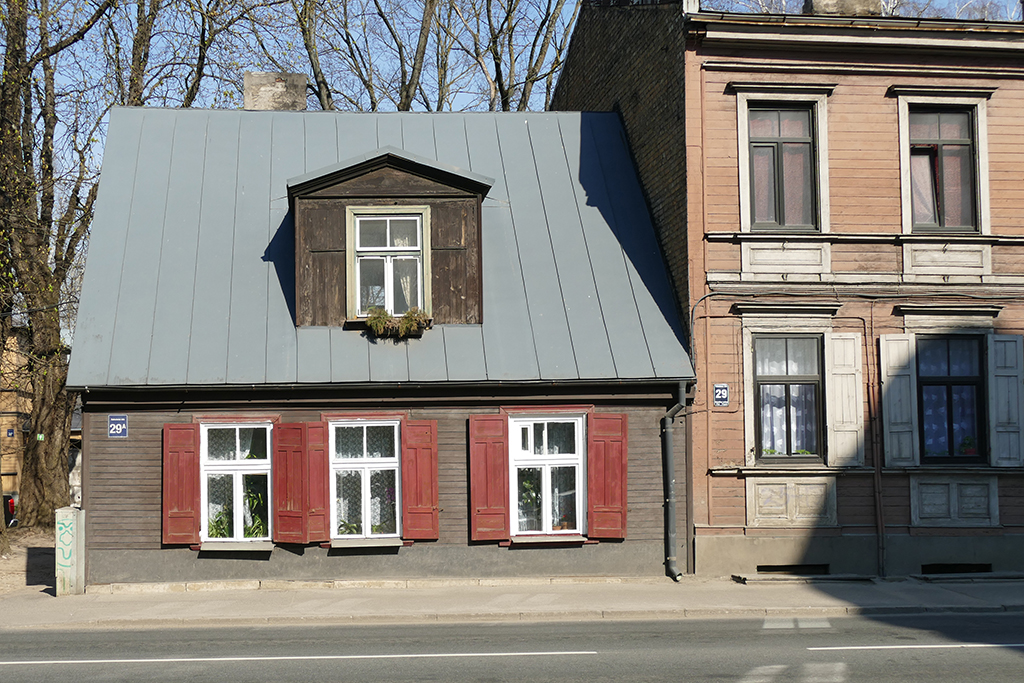
The next morning, we take the bus at the stop where we got off the night before and head for the old town. We like what we see from our bus windows: Many trees lining the streets, parks, wooden houses – everything is a bit Slavic and at the same time a bit Scandinavian. And cozy.
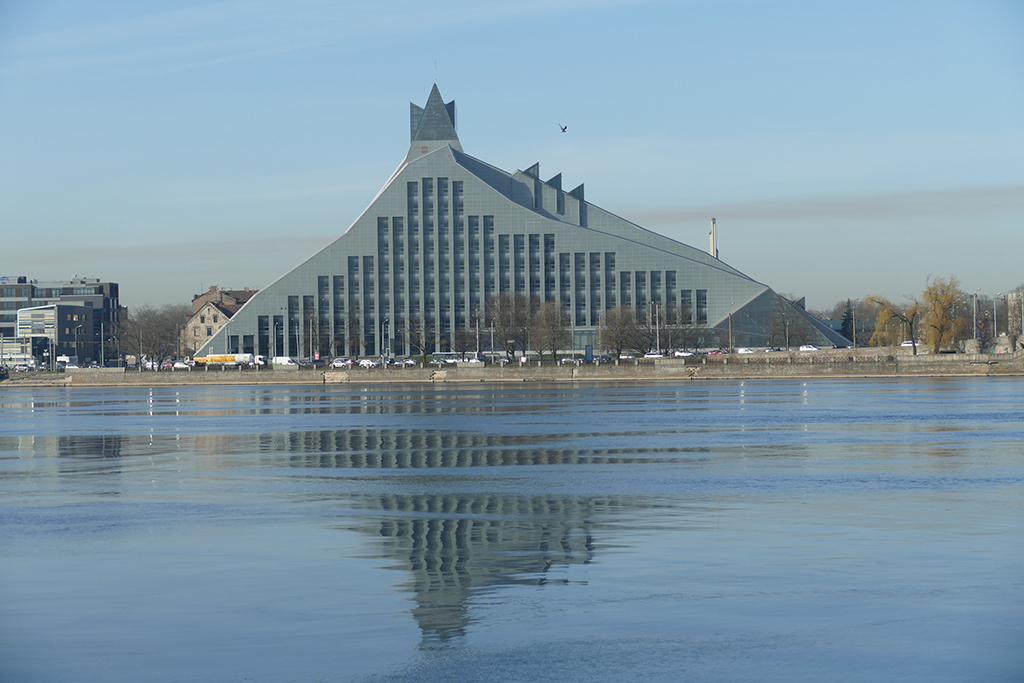
We have less than one hour till our walking tour begins, so we just stop for a bite at the next available café – and get lucky: We grab a quick breakfast at a café bar which is as trendy as expected.
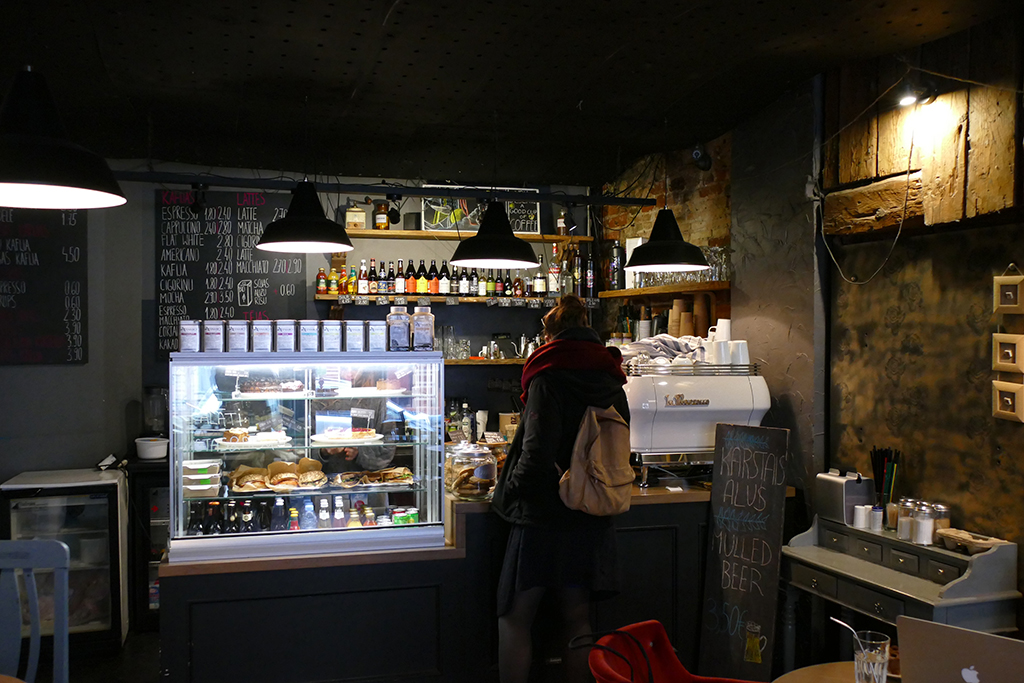
With full stomachs, we are pacing to St. Peter’s. It’s Riga’s tallest church, built from these red bricks that are typical for North German Baltic architecture, and opened in 1746.
Later we’ll find out that this won’t be the only feature that deems familiar.
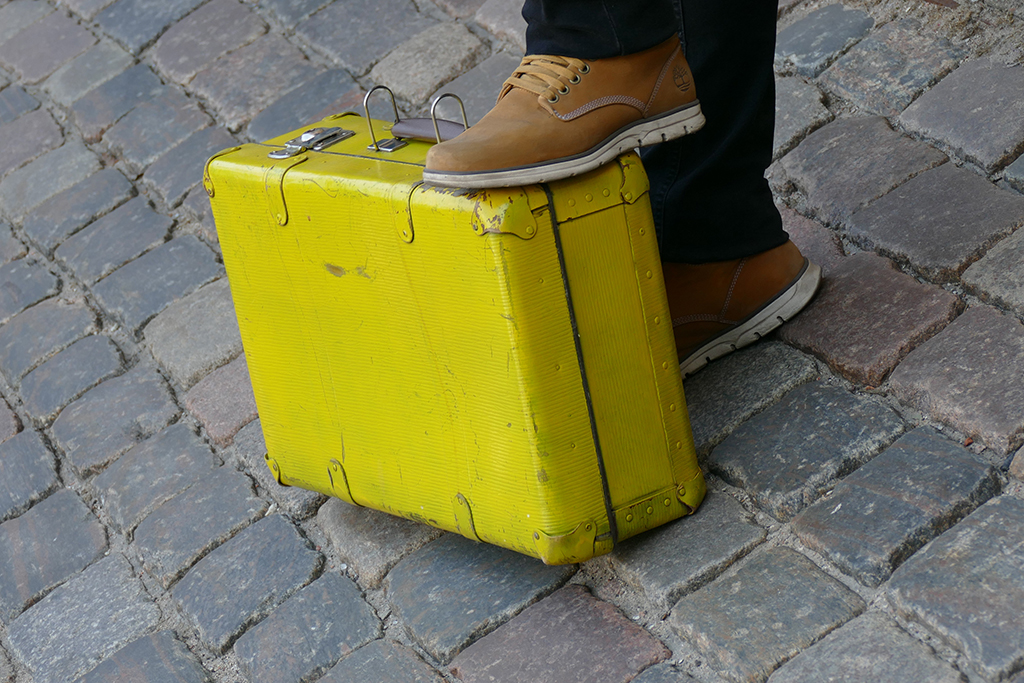
Walking With Liga
At the main entrance, we join one of these free walking tours, guided by Liga, a fine-boned blond in her mid-twenties.
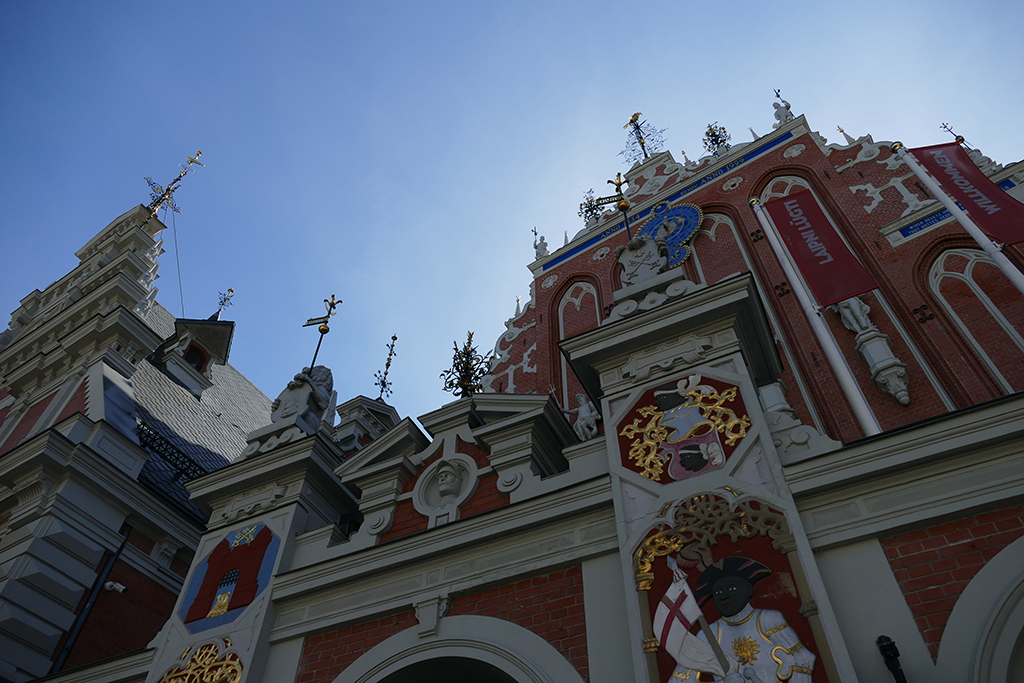
Guiding us through the narrow alleys of the historic center, she explains as briefly as she can the everchanging and complicated history of her people that experienced independence only briefly from 1918 till 1940 and now again – and hopefully for good – since 1991.
Cultural Melting Pot
Over the centuries, Latvia was under Swedish, German, Polish, and Russian hegemony. The city’s predominant architecture stems from the grand times when Riga was an important member of the Hanseatic League – I wrote about this conglomerate in my post on the Mother of the Hanse, Lübeck.
Hence, for centuries, the German upper classes represented Latvia’s bourgeoisie and landowners. During the Reformation, Latvia became Lutheran, later, under the Polish, it became partly Catholic again.
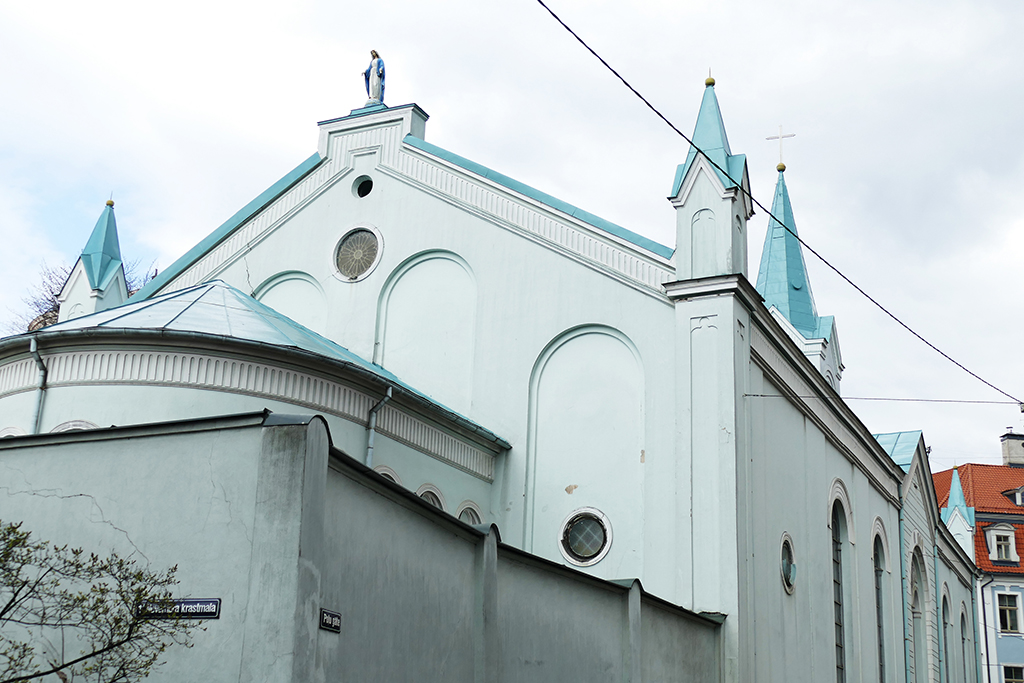
However, in 2016, Riga was awarded the honorary title of Reformation City of Europe by the Community of Protestant Churches in Europe. Nonetheless, more than 40 percent of Latvia’s population is confessionless.
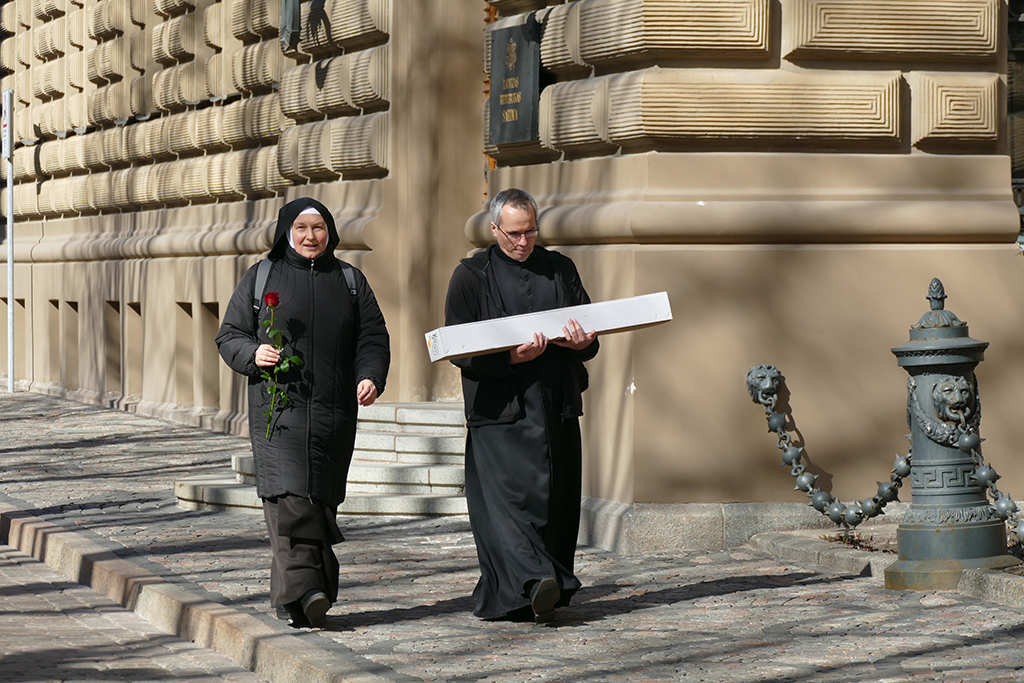
So Liga, dressed in existentialist black, is telling us about the buildings and the history and everyday life in Riga and about the Latvian mentality and quirks and she does it in a laconic, almost sarcastic way and I can read the melancholy and the atrabiliousness of grey skies and long winters between the lines.
Not only is she wearing only black, also her humor is as black as a raven’s wing.
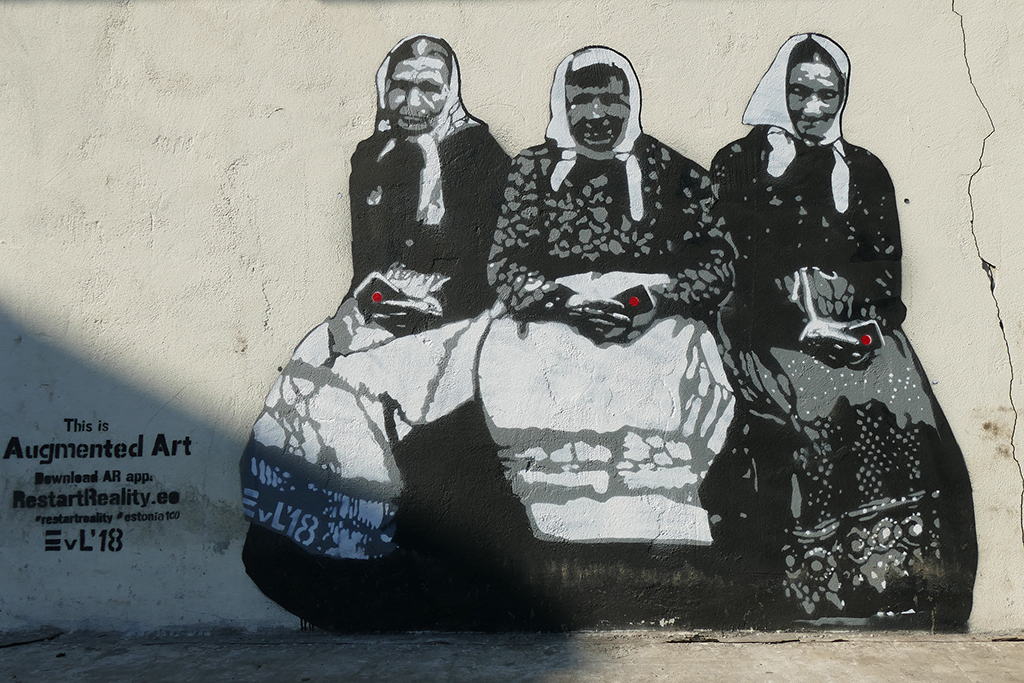
National Identity
She’s singing and dancing traditional folkloric dances.
No, of course not here in front of us on the Doma Laukums, the huge square in front of the cathedral where we are standing now.
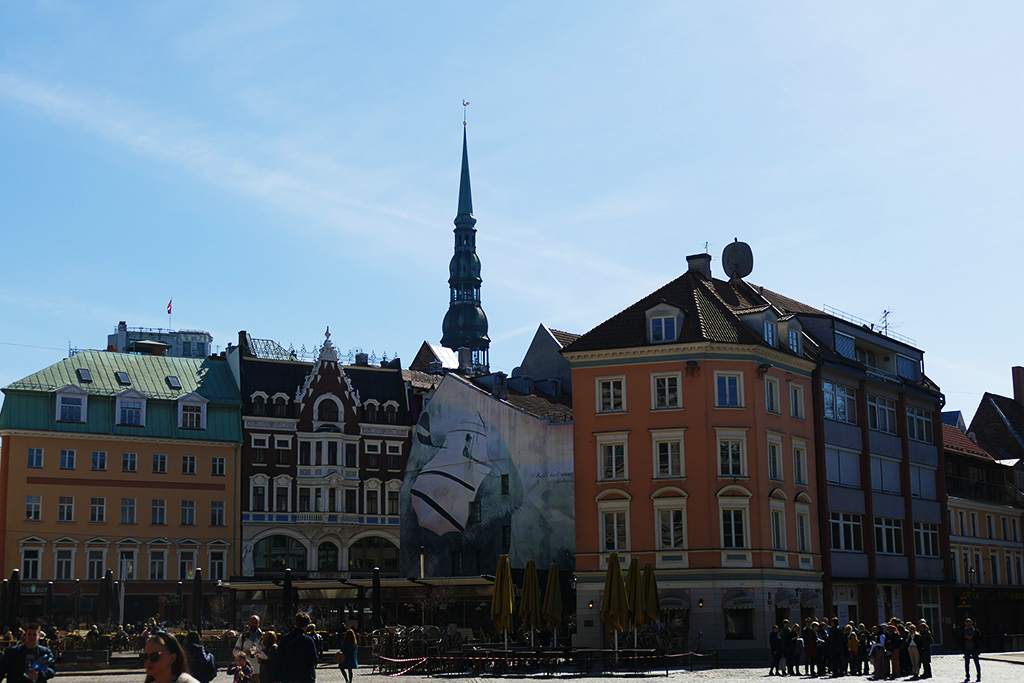
No, she’s singing and dancing Latvian traditionals in her leisure time, obviously. Because for young, hip Latvians, these traditions are the symbol of their very young freedom to express their ethnic identity. An ethnic identity that, however, does not lead to dull nationalism or a grotesque superiority complex. They just enjoy their identity – as Latvians and Europeans alike.
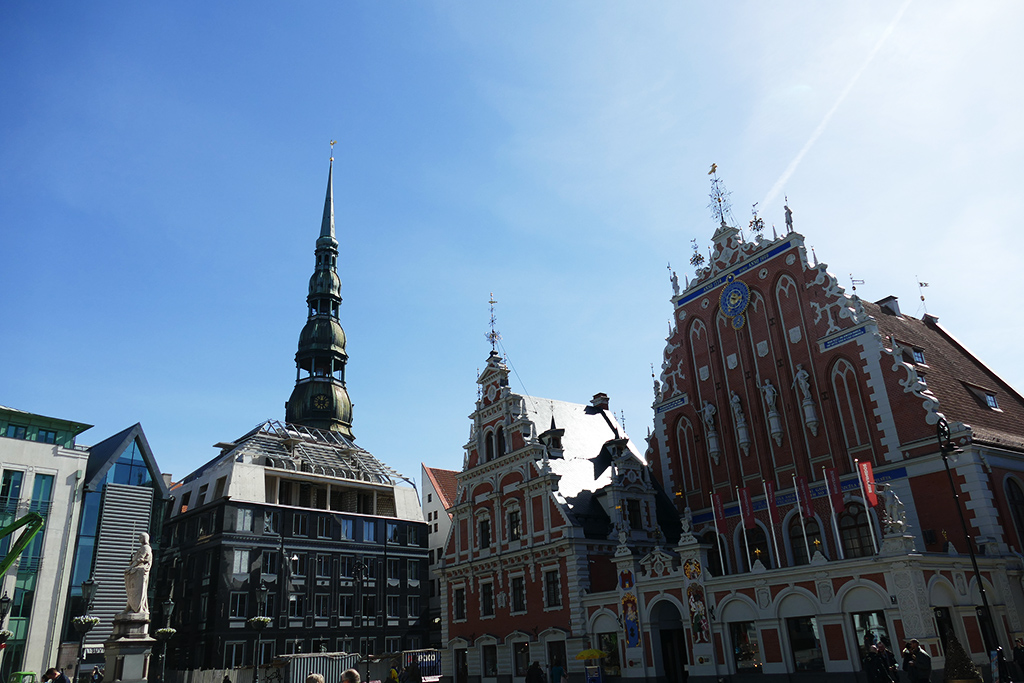
Most youngsters speak at least three languages, Latvian, Russian, and English. Many speak further tongues – I’ve met some of them in Milan, remember?
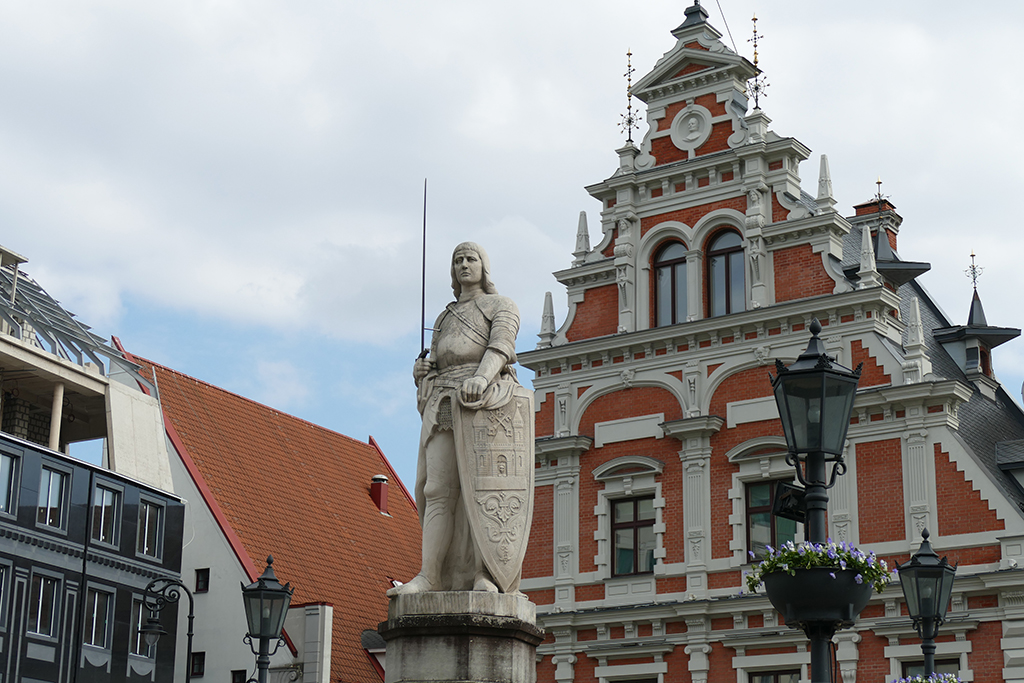
We get to the iconic House of Blackheads and the neighboring Schwab House, designed by Karl Johann Felsko at the end of the 19th century. Also, in front of these prestigious buildings stands the statue of Roland, the symbol of Hansa trading cities, with the Riga coat of arms on his shield.
Traces of Riga’s German influence and heritage, ironically, completely destroyed in WWII during a German air raid.
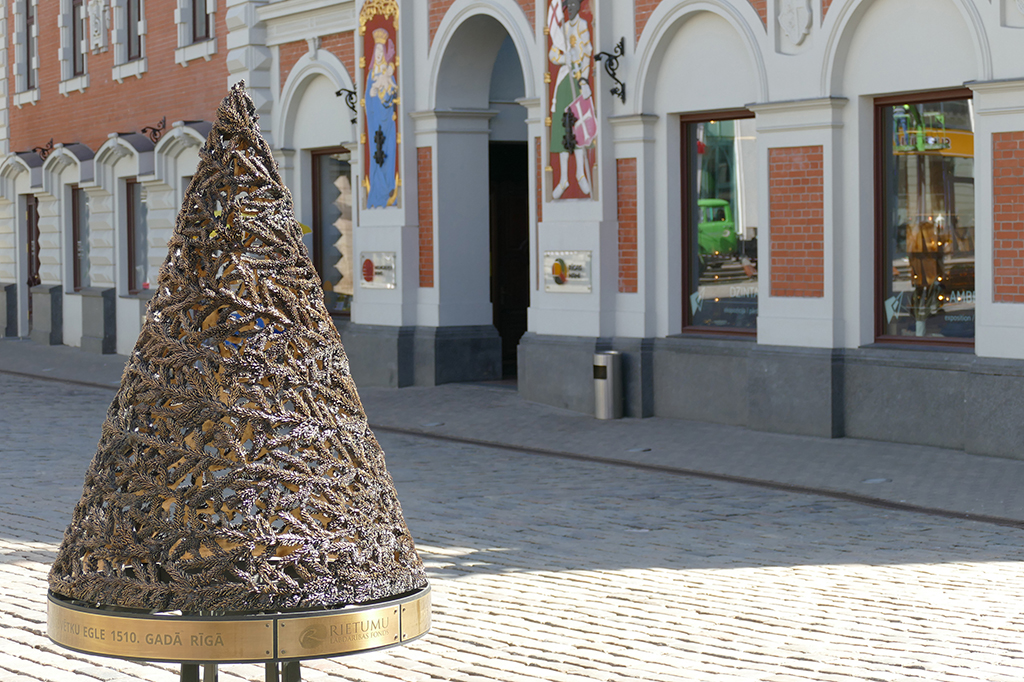
I’m surprised that despite the long German hegemony and the German occupation during WWII, there seem to be no hard feelings towards Germany.
No Union With The Soviet Union
In contradistinction to Russia: While I keep asking how things were when Latvia was part of the Soviet Union, Liga answers willingly, but keeps referring to that period as the time of occupation.
Semantic matters.
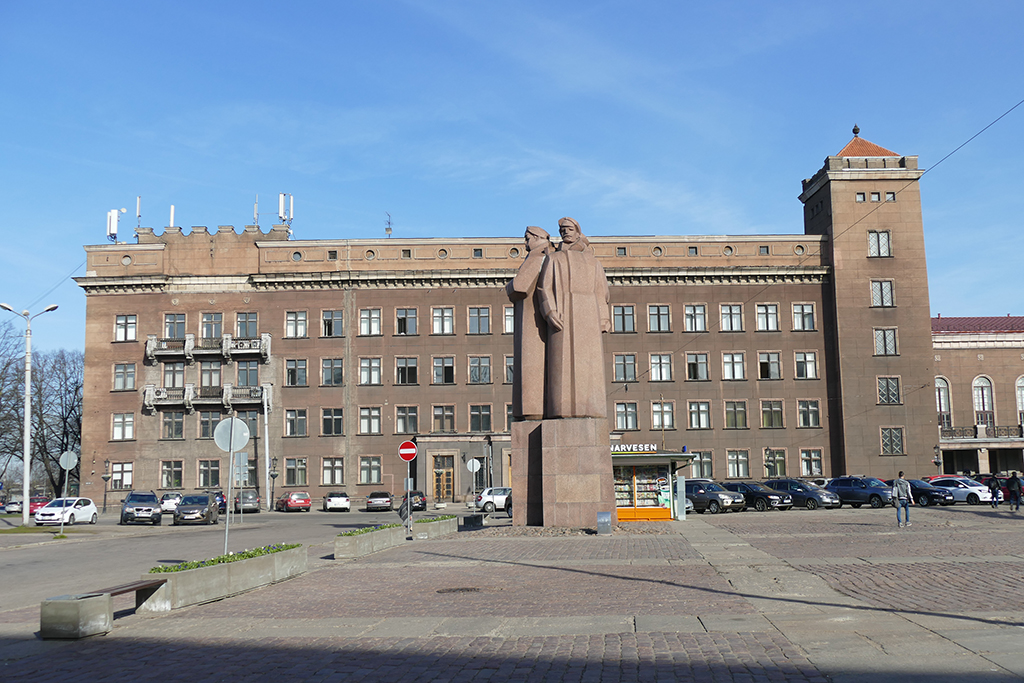
So for us, Liga doesn’t either dance or sing, she’s walking’n’talking and showering us with information until the tour is over: We’ve reached the backside of St. Peter’s church where in front of St. John’s church we encounter a well-known sculpture, namely the Bremen town musicians.
It was a gift from the city of….Bremen. It is an interpretation of the original statue, since, unlike the Bremen original, the animals built their formation between two massive metal bands. This way, the animals seem to be surprised by this gap in the Iron Curtain.
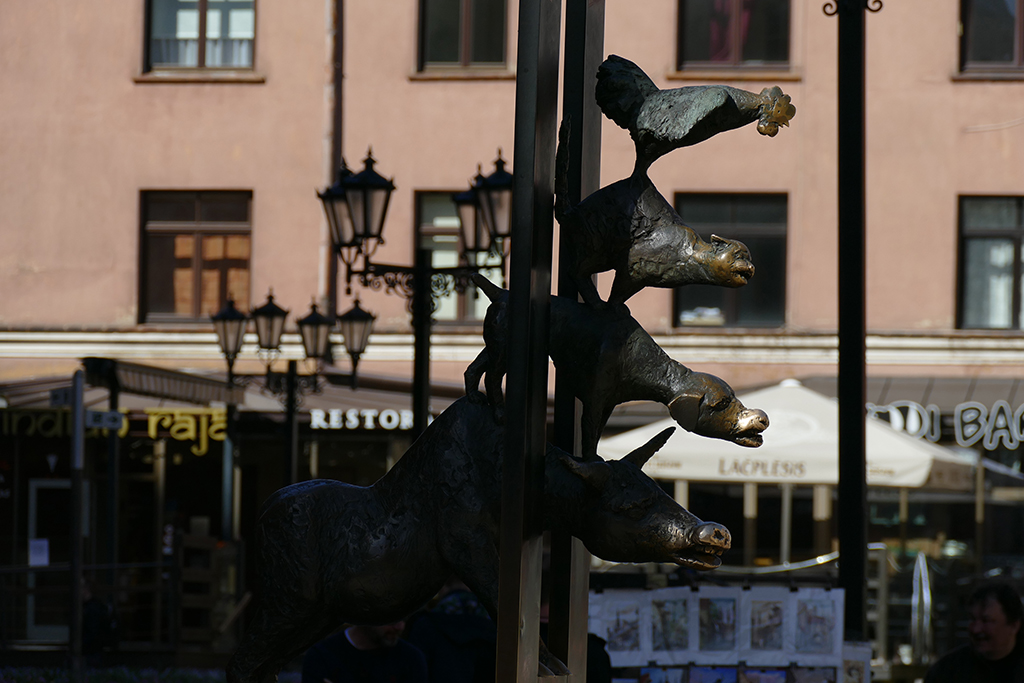
While in Bremen, you have to rub the donkey’s hooves – actually, only one, here you have to try to reach as high as you can. Yes, you are allowed to jump.
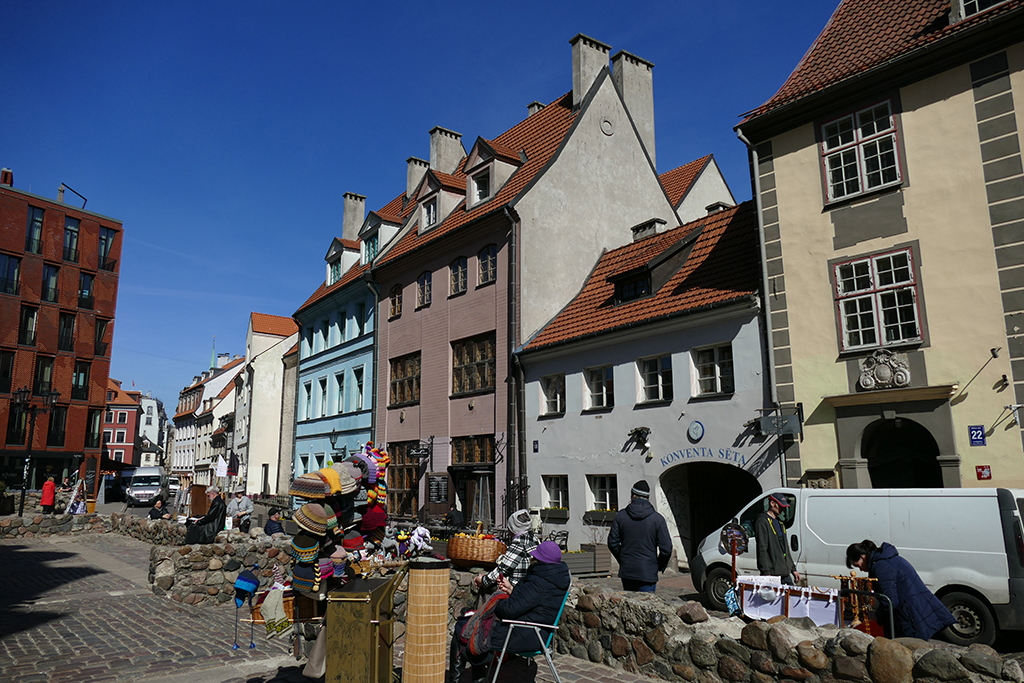
So the tour comes to an end, I hand Liga a 10 €uro bill and we check out the shopping opportunities right on this square and eventually the very touristy yet nice market Suvenīru tirgus on Tirgoņu iela.
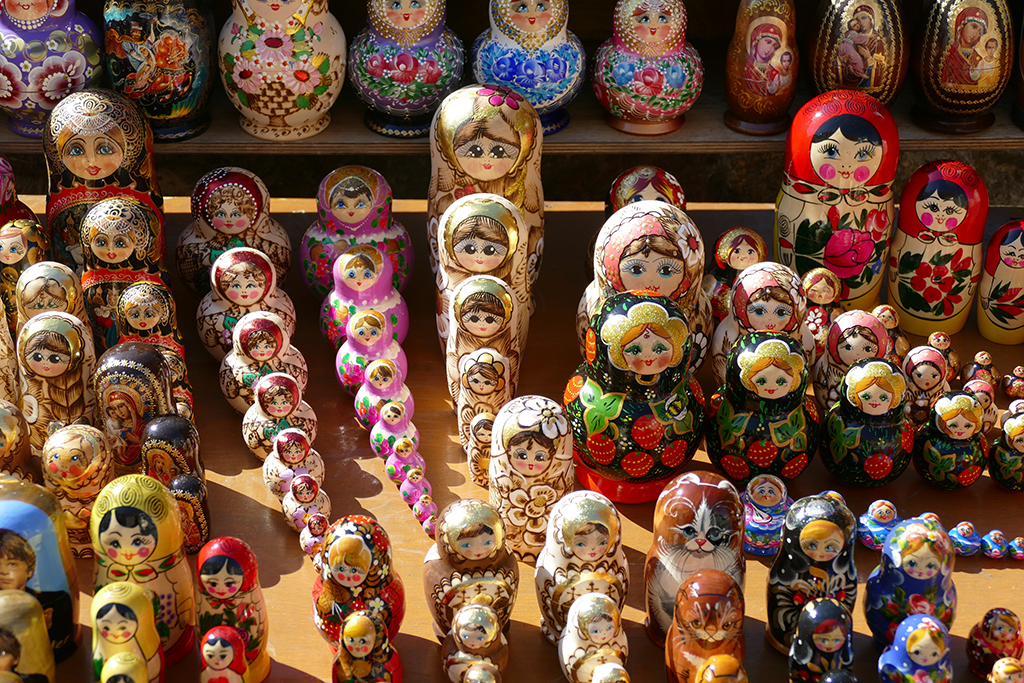
Traditional Handcraft
Here, too, traditional handcraft is presented right next to Costa Coffee and other international chains. So after a global Latte Macchiato, we browse at the stands offering all kinds of beautifully carved wooden toys and kitchen appliances, colorful embroidered aprons; and mittens, lots and lots of mittens.
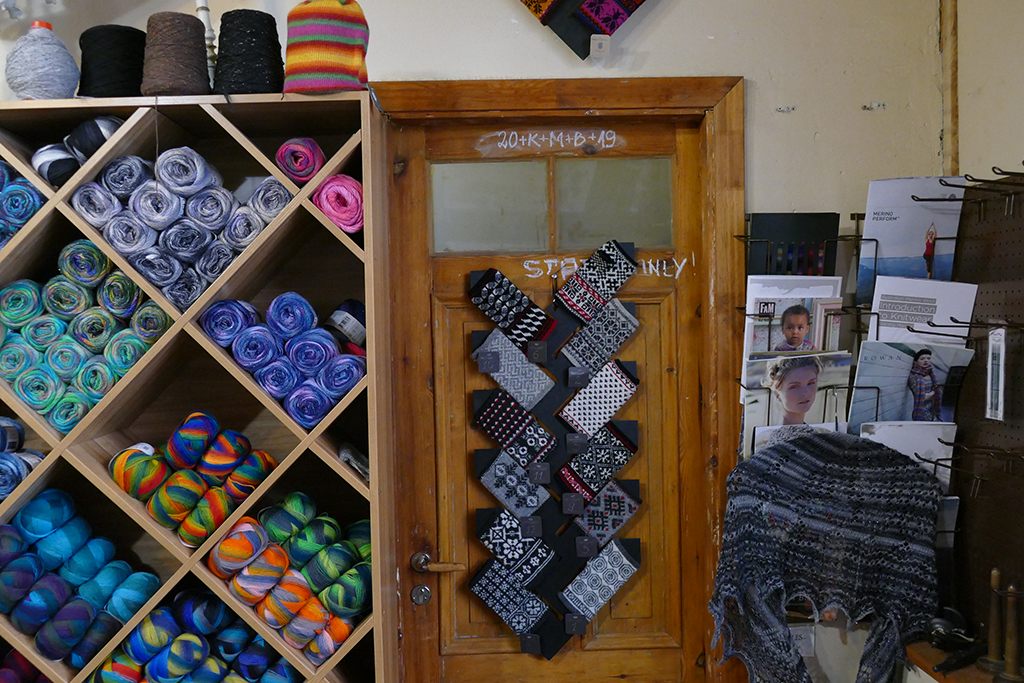
Obviously, knitting is an important handcraft in a region with long winters and the artistic, traditional mittens are sheer masterpieces – colorful and unique.
We are torn between buying mittens and socks and oversized shawls and purchasing loads of wool to knit them ourselves.
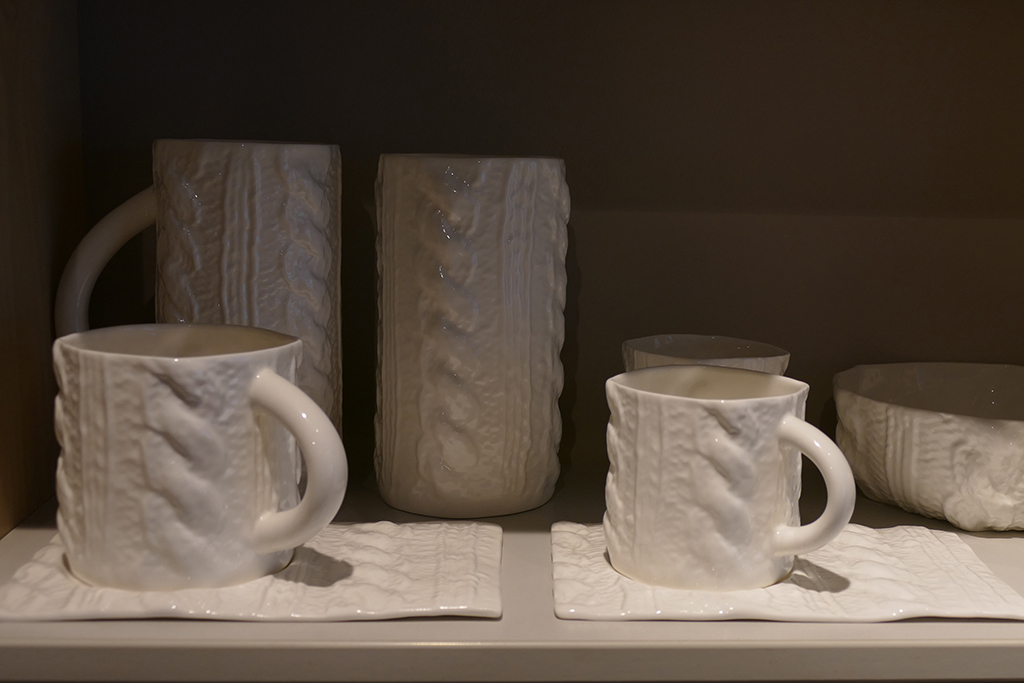
I reminisce on the 1980s when knitting was really big and I had more hand-knitted sweaters than any other garments in my closet. Therefore, I opt for 20 different balls of wool in bold colors.
Later, I’ll download some traditional patterns from the internet.
The Central Market
Now that we are so in this rural, traditional swing, we swing underneath the arterial road Satekles iela to the Centrāltirgus, Riga’s central market.
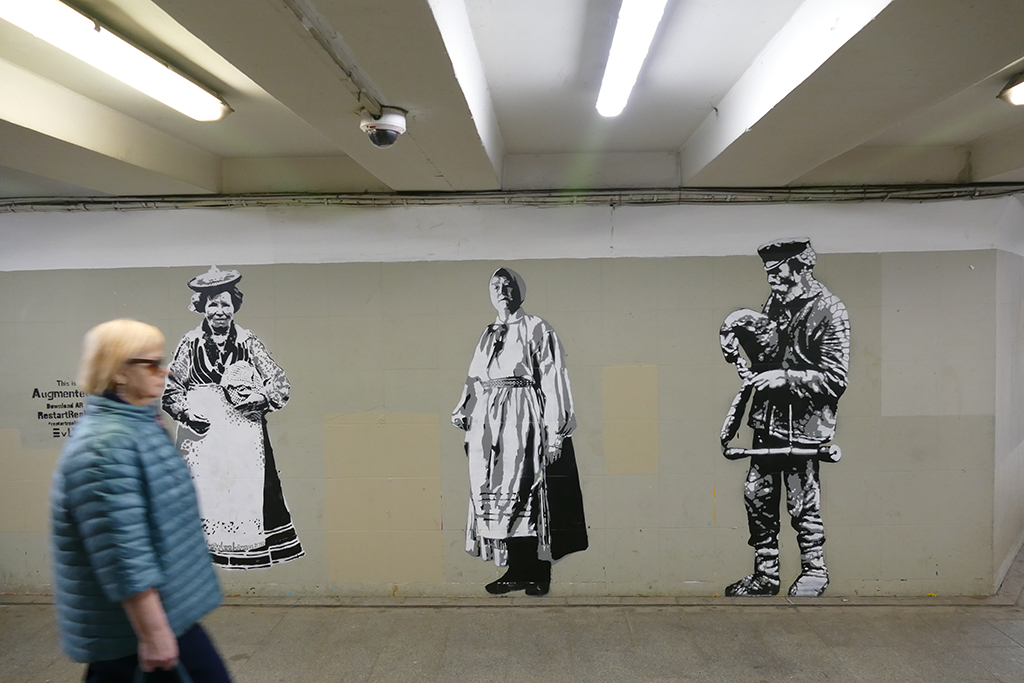
Built from 1924 to 1930 in art deco style, it is Europe’s largest market and one of the most notable structures in Latvia and has even made it onto the UNESCO World Heritage Site list together with Old Riga in 1998.
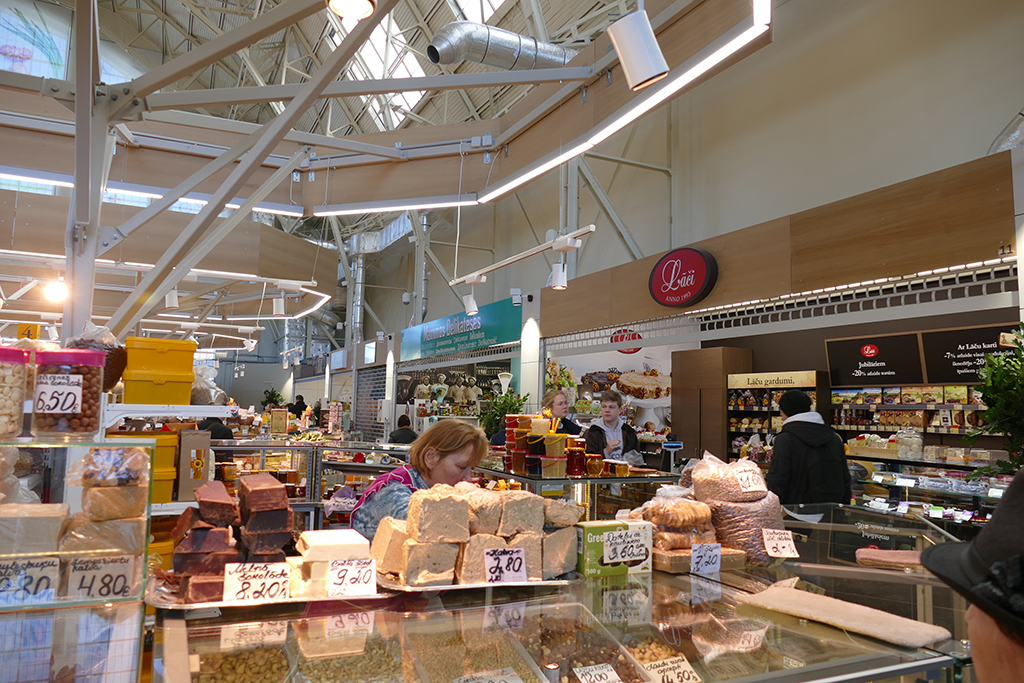
Here, again, tradition and modernity. While you can get all kinds of local produce – arranged in a very instagramable way – the food stalls are rather globally oriented: You feast on artisan burgers and some Asian cuisine instead of Latvian dumplings or cabbage soup.
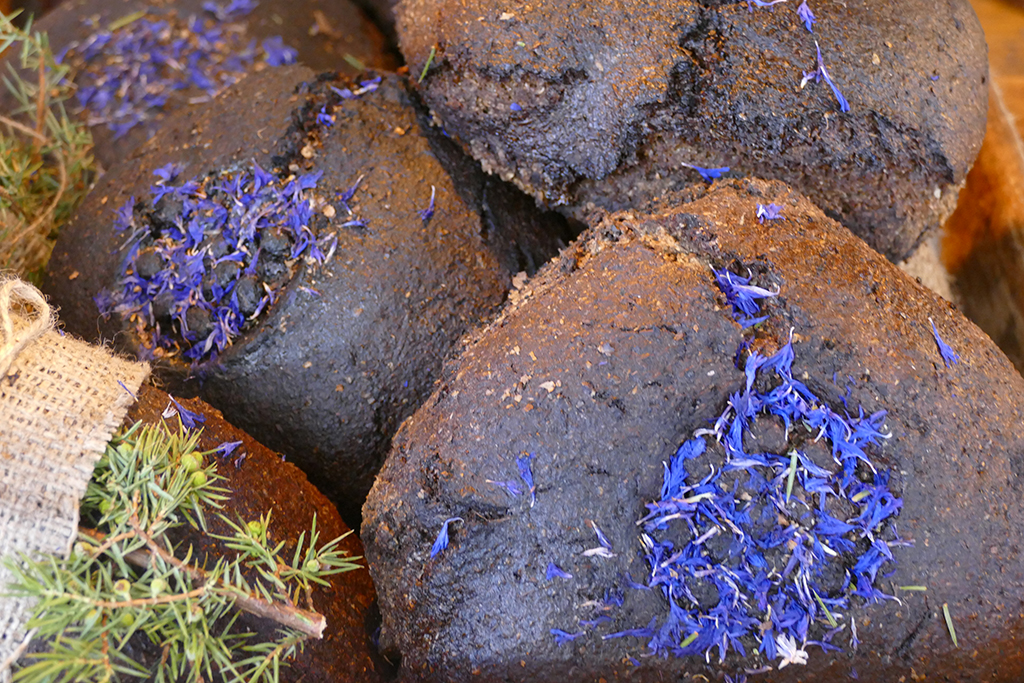
Well, it’s a real market, not a tourist place faking authenticity.

We order burgers made from some special beef and refined with some truffle sauce and are pretty happy with our choices.
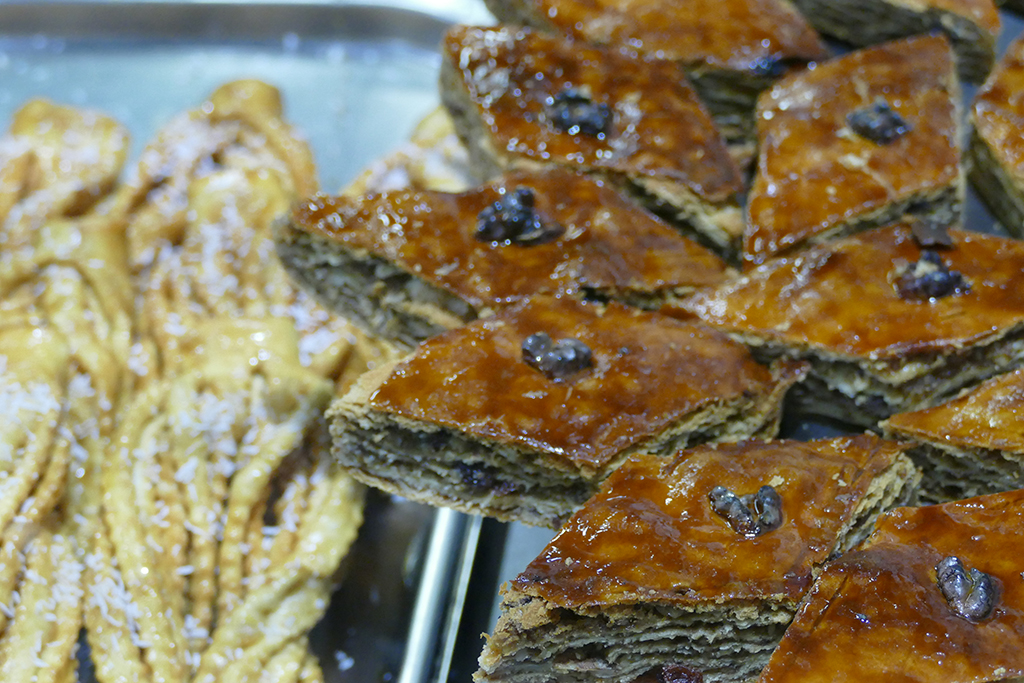
The Moscow District
The market is adjacent to the Moscow District, a neighborhood that once used to be populated by Russians and Jews. In WWII, a part of this area was fenced and transformed into the infamous Jewish Ghetto.
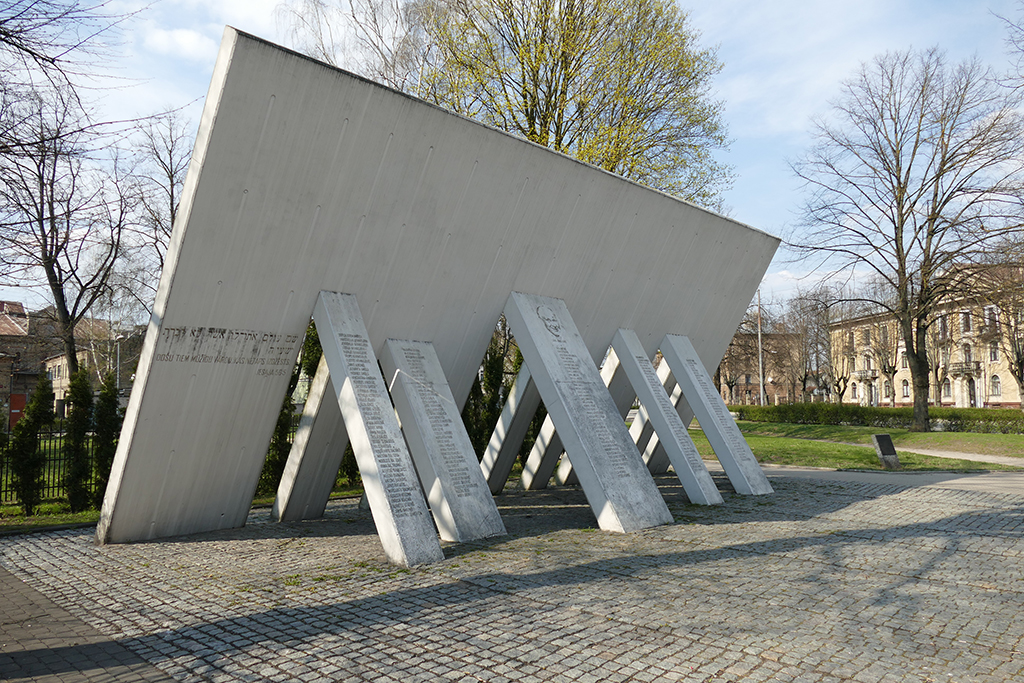
Today, you can pay the Choral Synagogue Holocaust Monument a visit as well as the Riga Ghetto and Latvian Holocaust Museum right next to the Spīķeri district.
The Spīķeri warehouses are looking back at an everchanging history. After having served different purposes, they now have been transformed into one of these hip’n’creative neighborhoods housing startups and agencies, galleries, and restaurants.
This area east of the central market is certainly not the most touristy attraction and exactly for this reason definitely worth a visit.
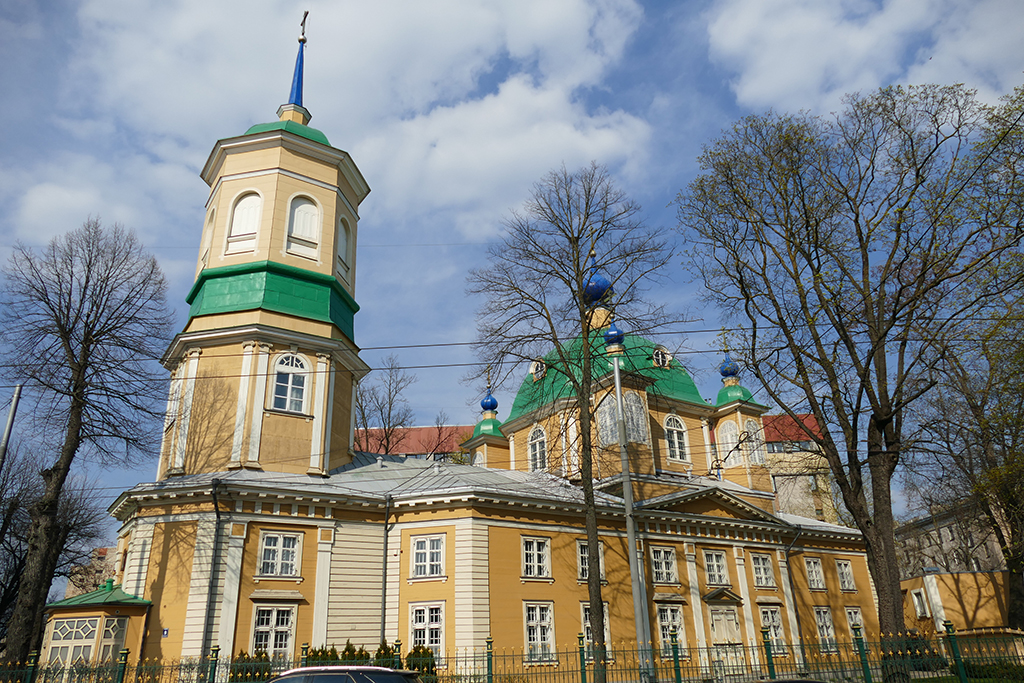
The New Town
While the most famous landmarks are scattered around the old city center, a visit to the so-called New Town to the northeast will allow you to discover some spectacular sights.
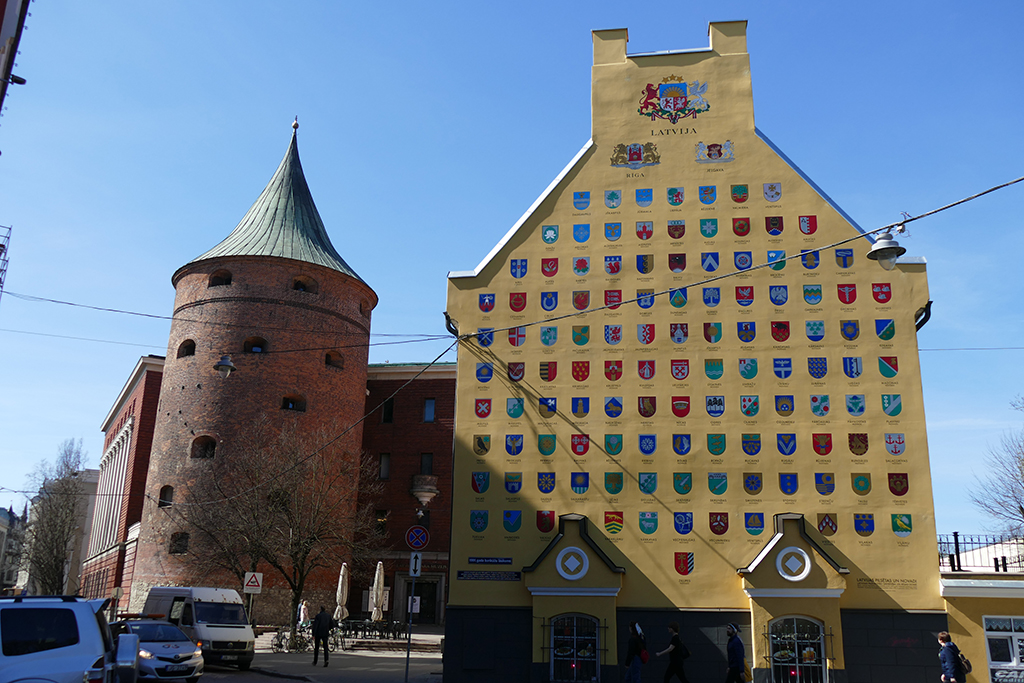
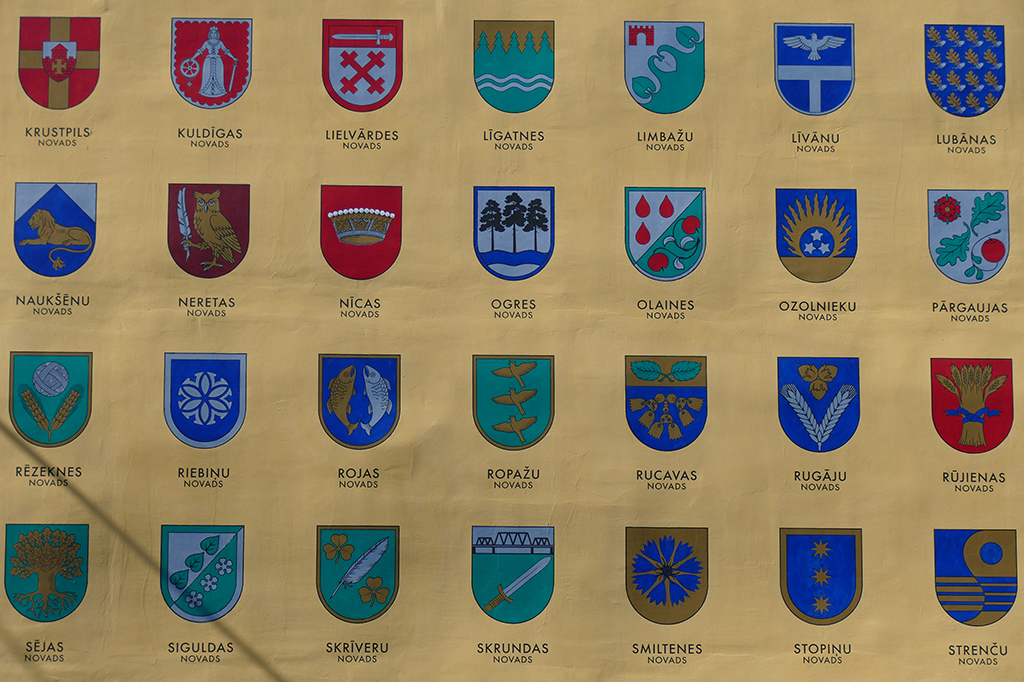
Between the Zigfrīda Annas Meierovica bulvāris and the Raiņa bulvāris you can respire’n’relax while strolling along the Bastion Hill and Park.
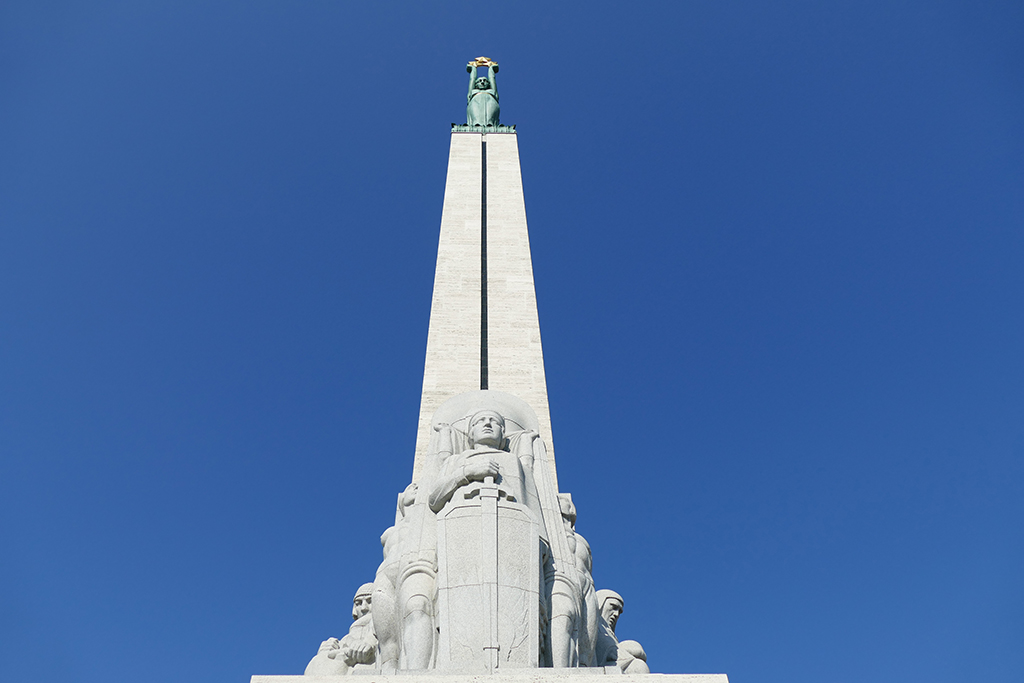
Right in the center is a 19-meter high obelisk, the Freedom Monument, created by Kārlis Zāle and finished in 1935.
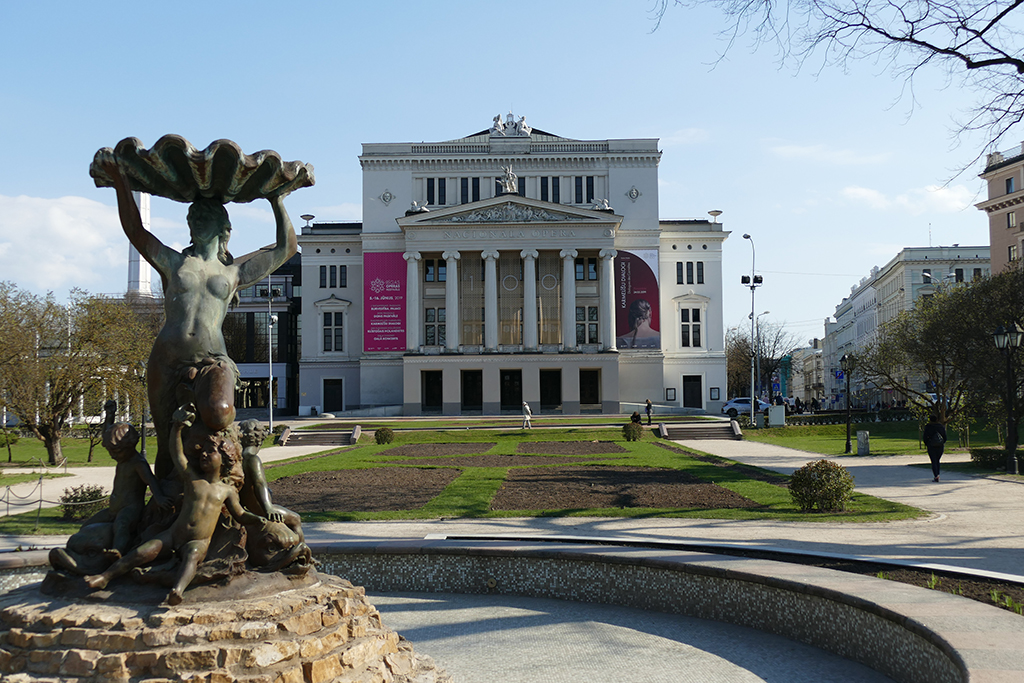
Esplanāde
As you continue for the Bastion Park out of the center, passing the Esplanāde square, you’ll reach Riga’s treasure box, the art nouveau district.
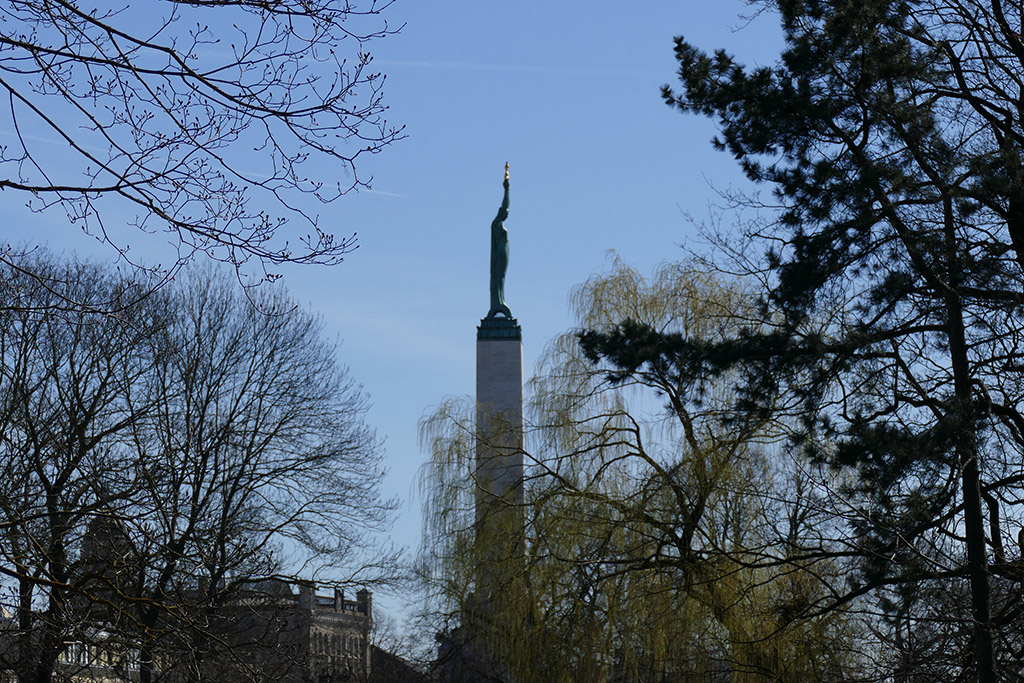
But wait, don’t you just pace across the greeneries; take your time to stroll around, admire the Orthodox Cathedral which was built end of the 19th century in a Neo-Byzantine style.
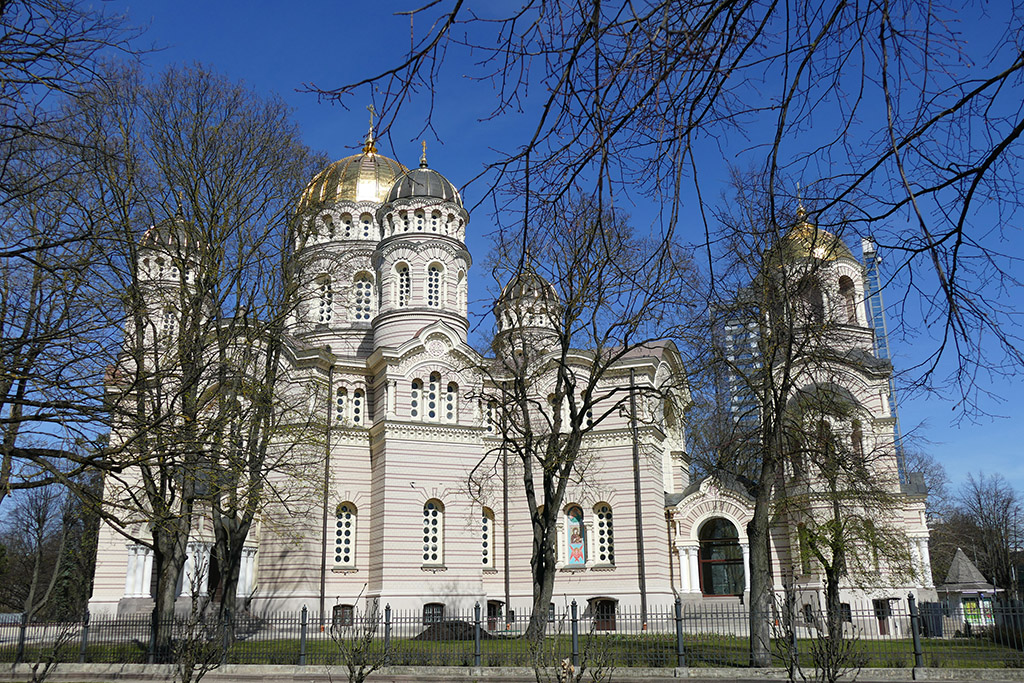
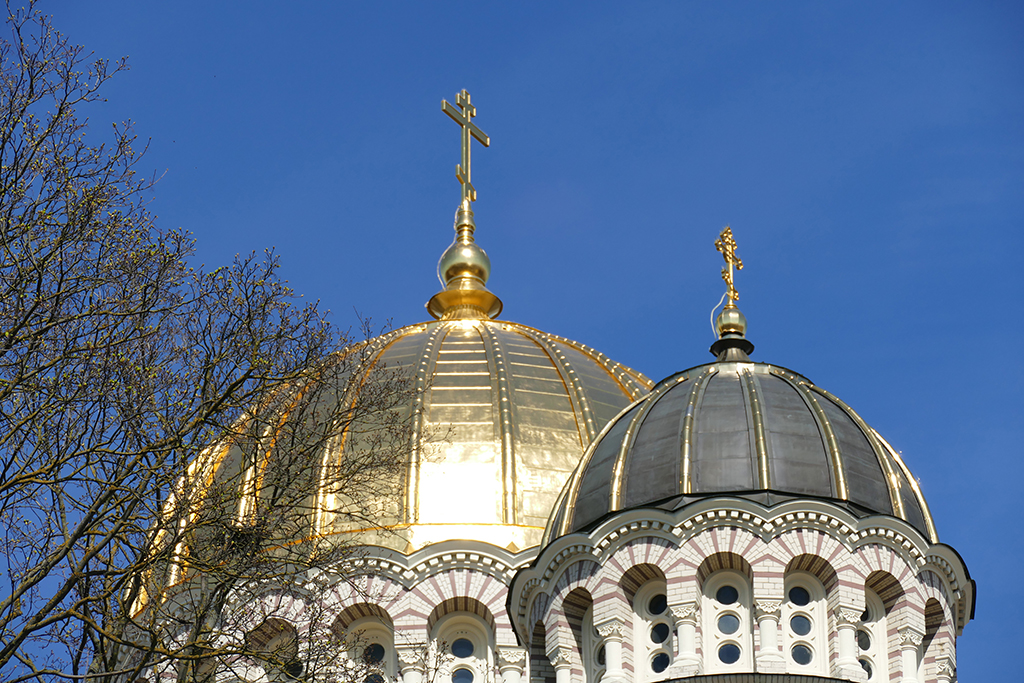
On the Esplanāde’s opposite end, you’ll spot the Art Academy of Latvia and next to it the National Museum of Art, housing mostly Latvian artists but also different temporary exhibits.
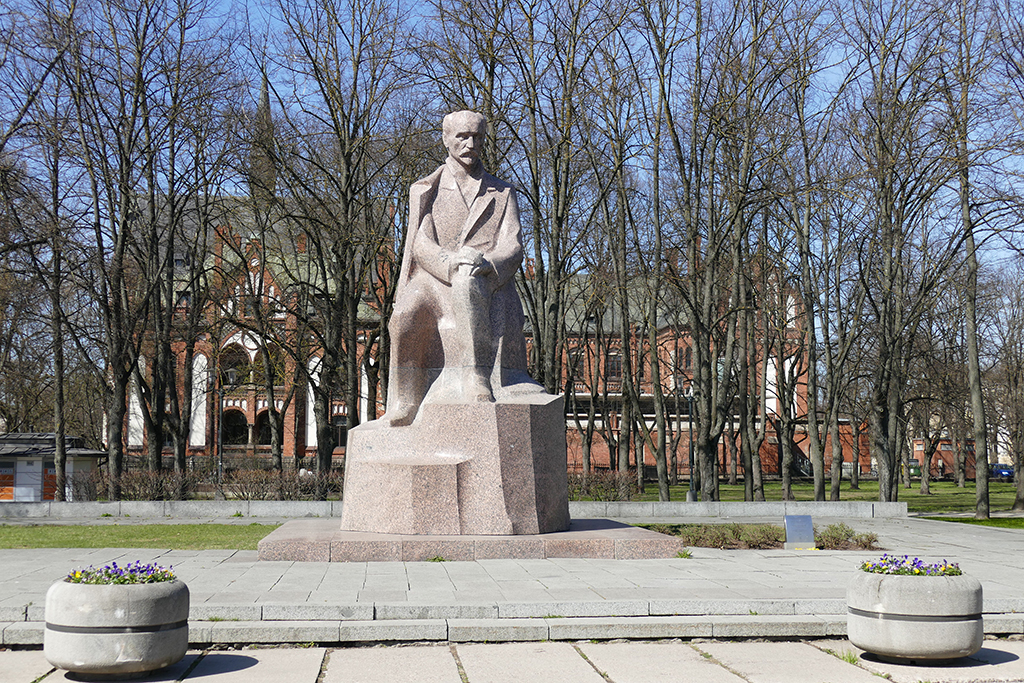
Even if you are not that much into art, the building as such is interesting and from the top floor, you have a grand view of the city.
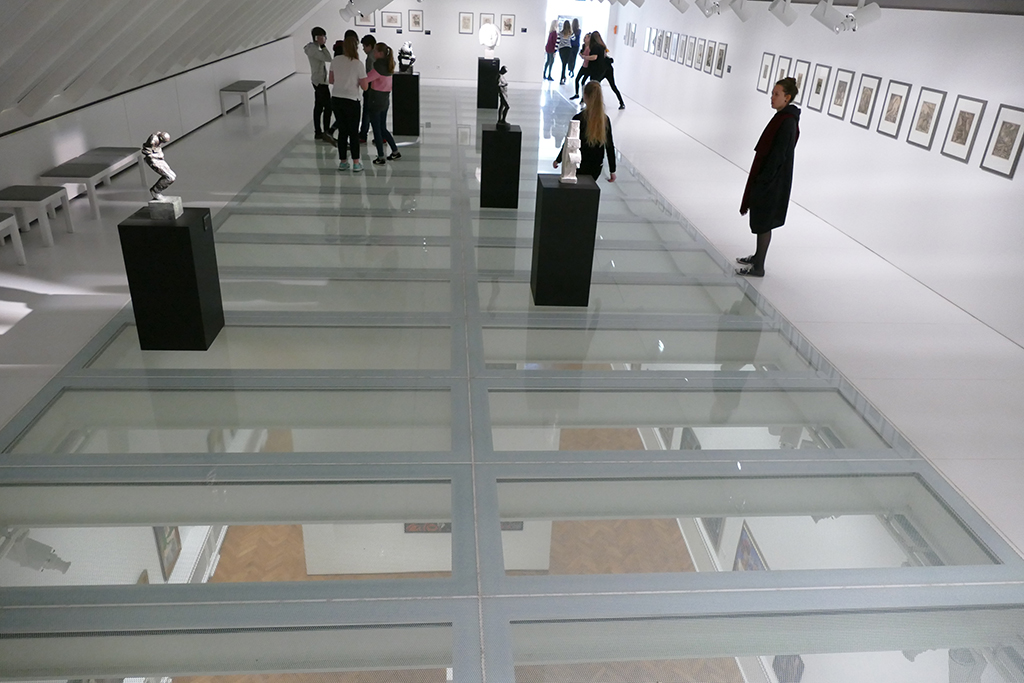
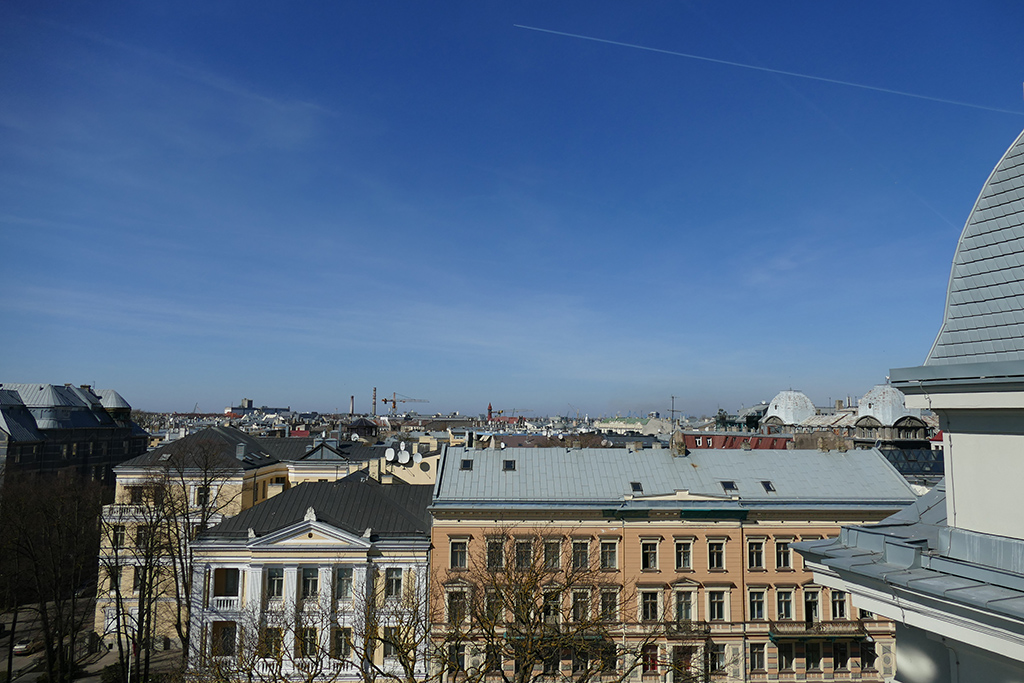
Latvian National Museum of Art
Jaņa Rozentāla laukums 1
Rīga, LV-1010
Phone: +371 – 67 32 44 61
Email: lnmm@lnmm.lv
The museum is open from Tuesday to Sunday from 10 a. m. to 6 p. m., Fridays to 8 p. m. and weekends to 5 p. m.
Art Nouveau
North of the Esplanāde, nearly every building is a piece of art and proves Riga’s economic grandezza at the beginning of the 20th century.
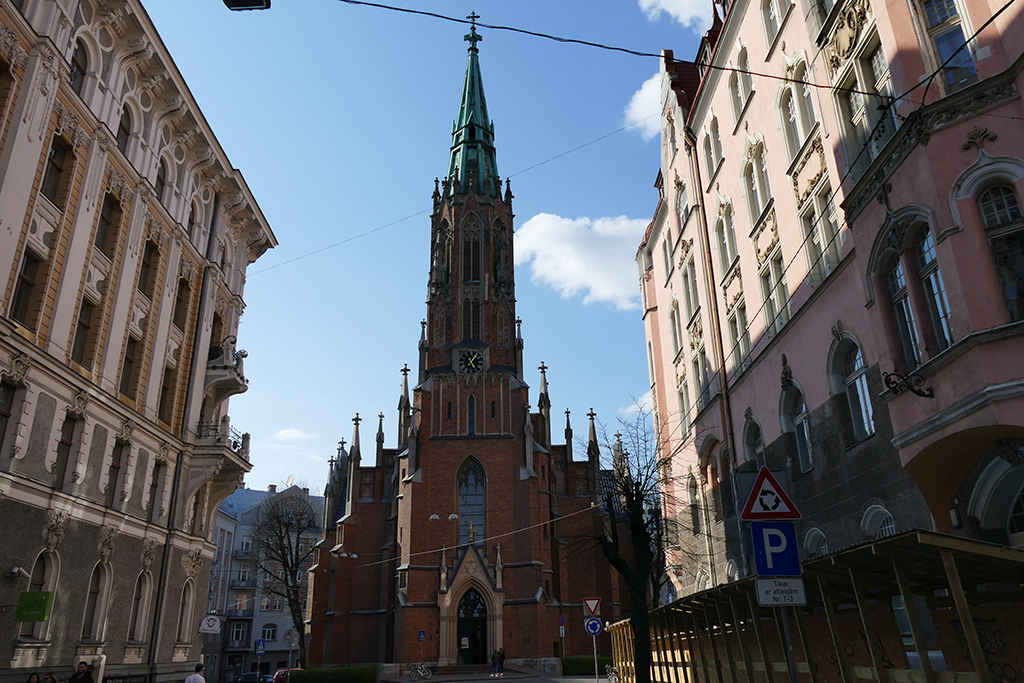
Strolling through the streets north of Elizabetes iela is like visiting an outdoor museum. Mainly on the streets Elizabetes iela and Alberta iela, every building flashes an impressive Art Nouveau facade.
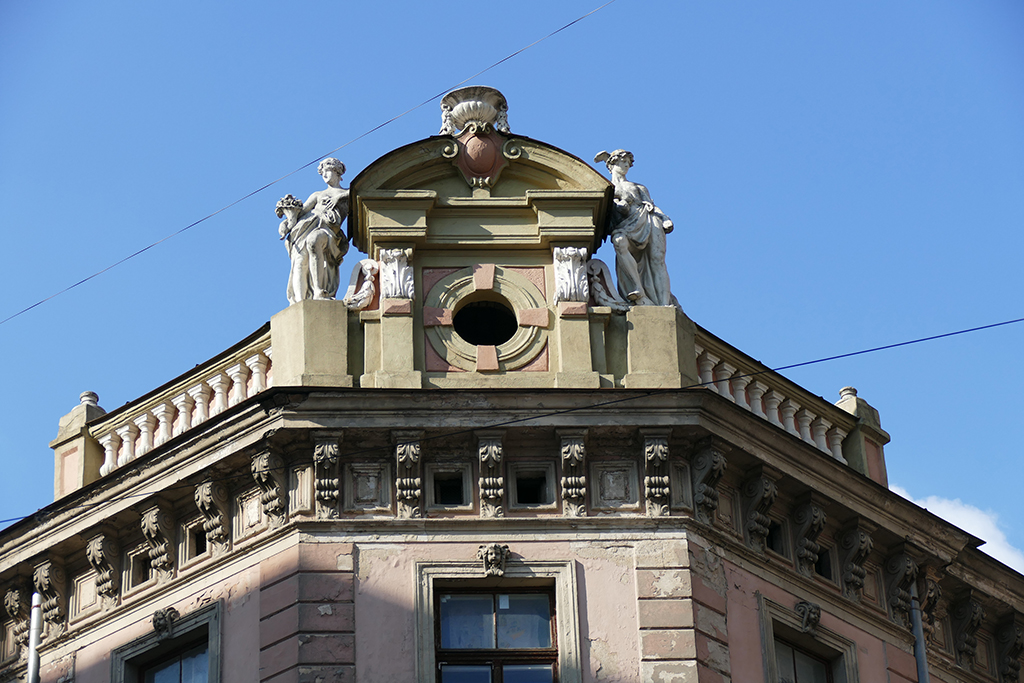
Here, the houses – mostly built between 1904 and 1914 – are showing amazing decorative details such as sculptures, stained glass, and majolica. Much of these were made by local companies.
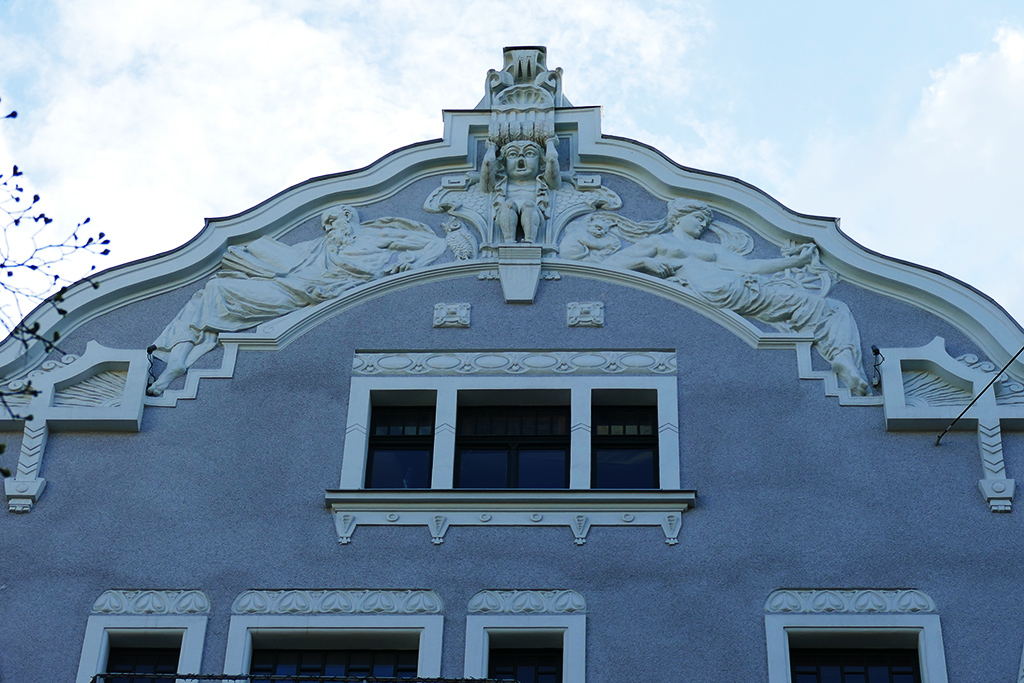
Actually, these Art Nouveau structures make up about one-third of the buildings in Riga’s center – mind you, the city has the world’s highest concentration of Art Nouveau architecture.
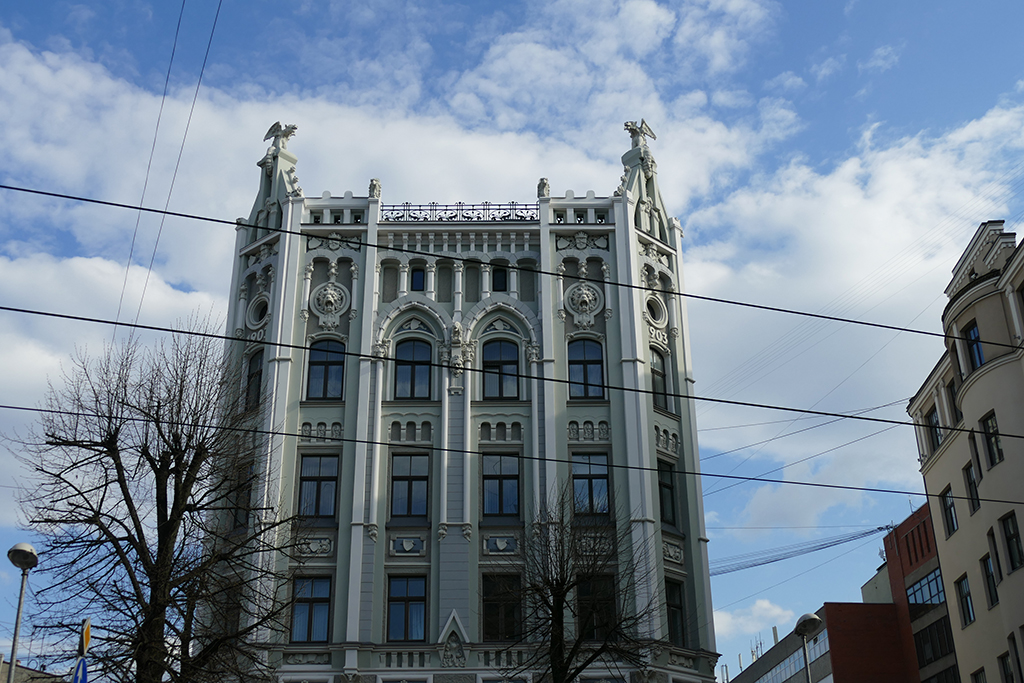
A Compact Country Tour
Yes, there is a lot to see at Riga’s center. However, to us, one of the most impressive venues was the Ethnographic Open-Air Museum, located about 30 minutes northeast of the city center.
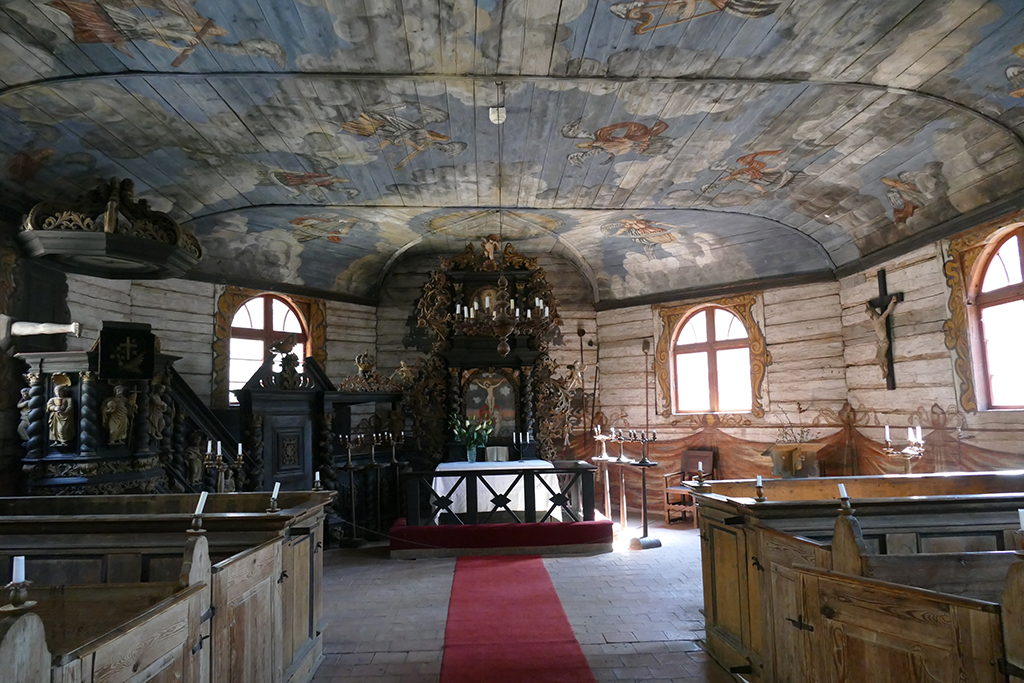
Especially since Riga was the only place in Latvia we had the chance to visit, this wonderful outdoor museum was a great opportunity to learn more about all the other regions….which we will visit on our next trip.
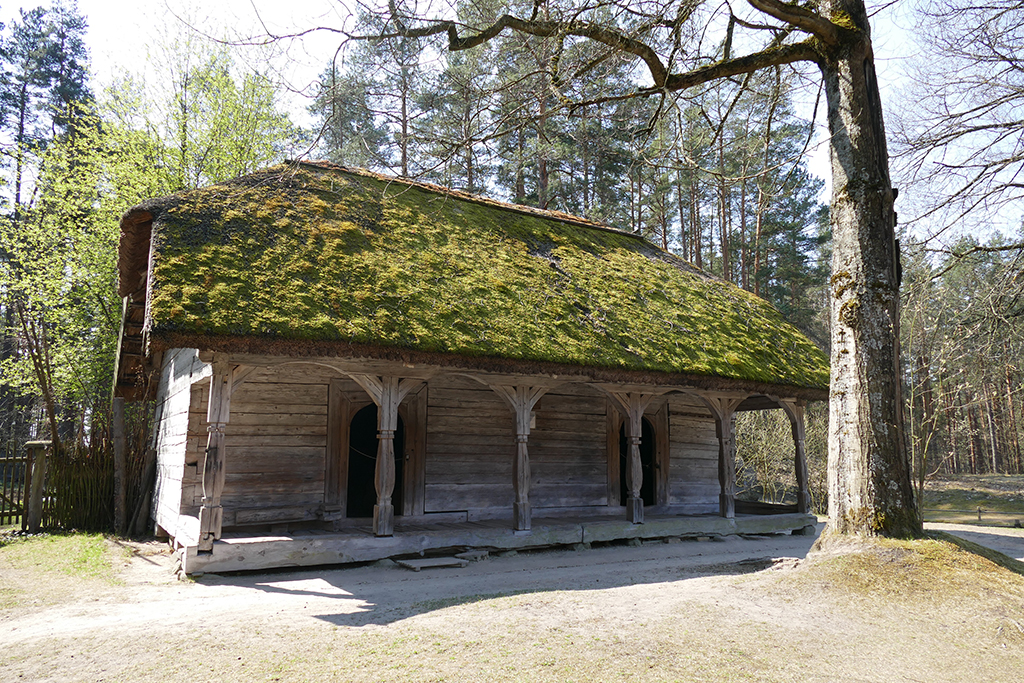
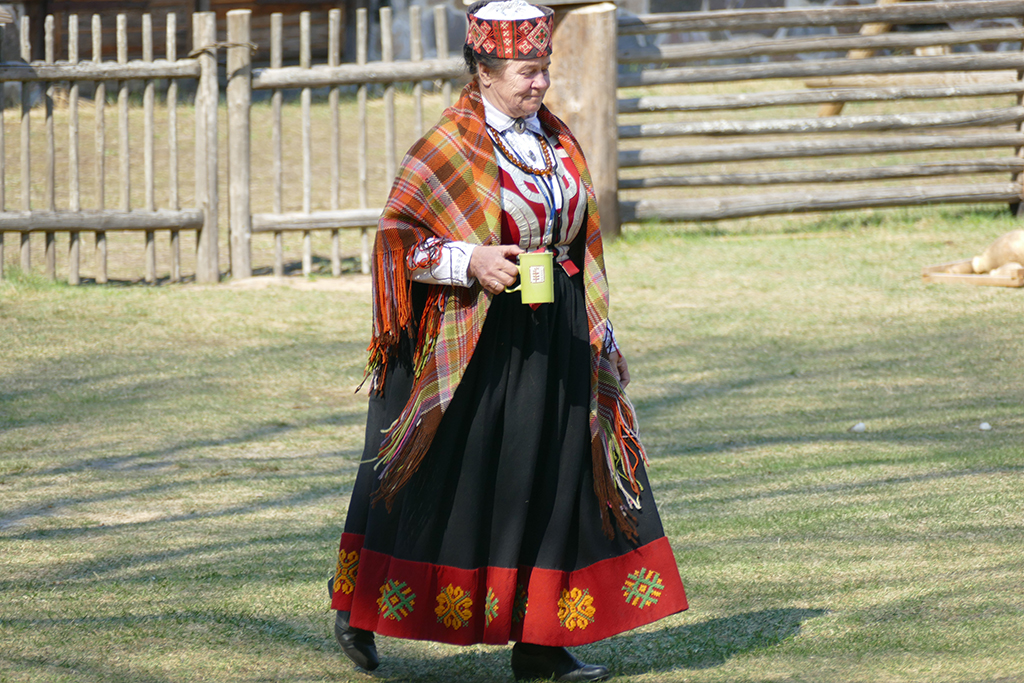
About half an hour by bus north of the city center is one of Europe’s oldest and largest open-air museums: Located on the banks of lake Jugla, incredible 118 historical buildings from all four of Latvia’s provinces have been assembled in a spacious wood. Mind you, the oldest of these buildings stems from the 17th century!
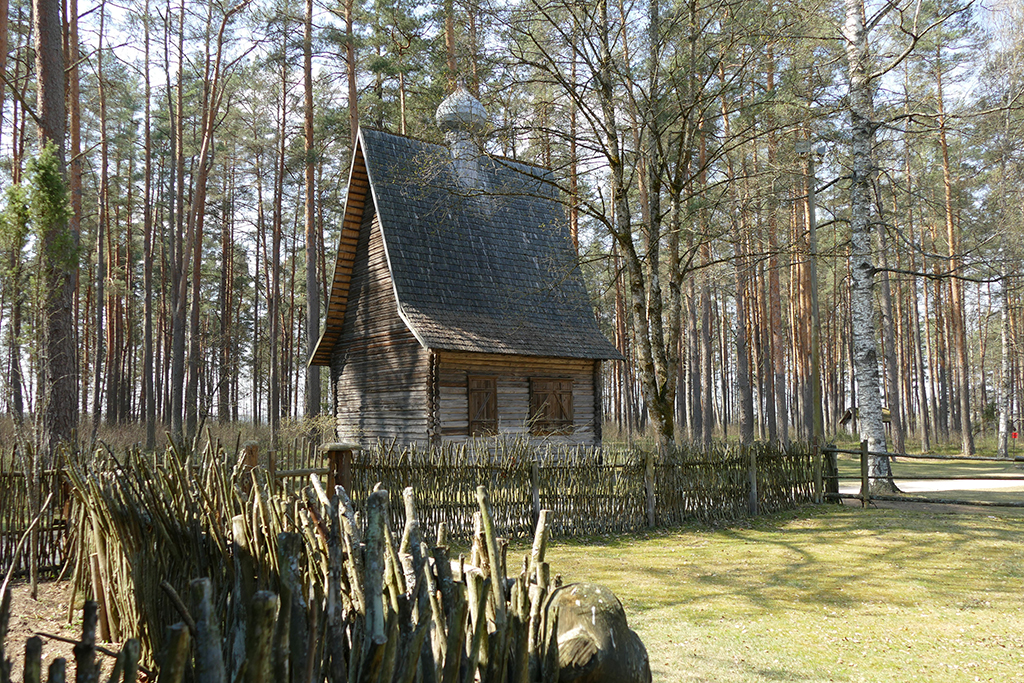
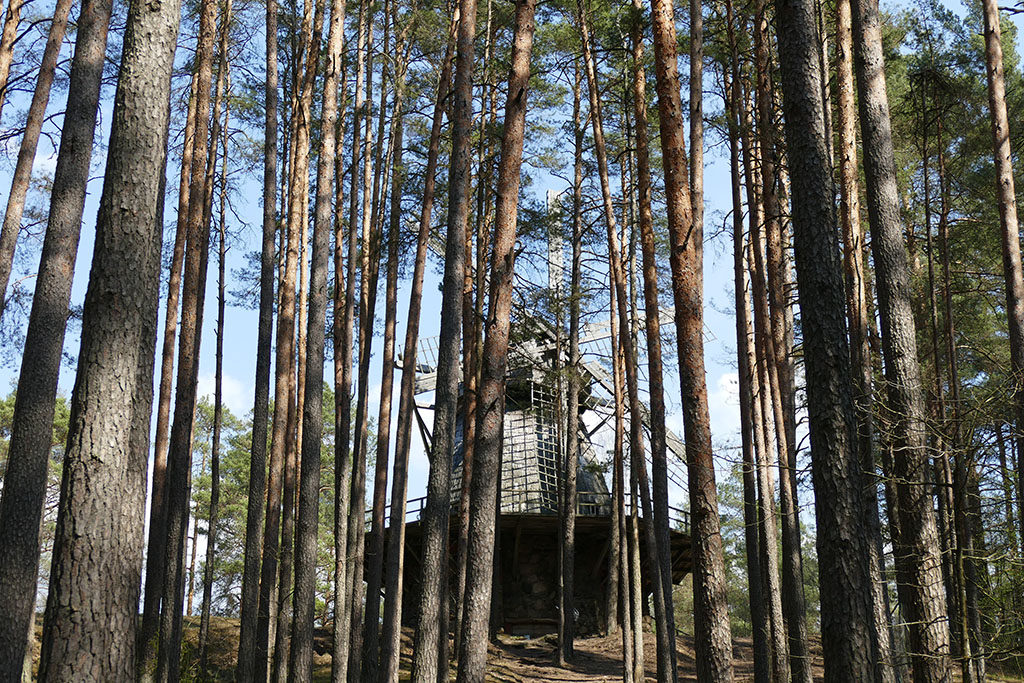
This place, too, proves the awakened national identity. During the Soviet hegemony, places like this museum were considered ideologically incorrect.
Therefore, today, the museum is not only a touristy place: While we were there, most of the other visitors were locals, many of them families with kids. The museum promotes traditional Latvian culture and lifestyle by organizing concerts and traditional craft fairs.
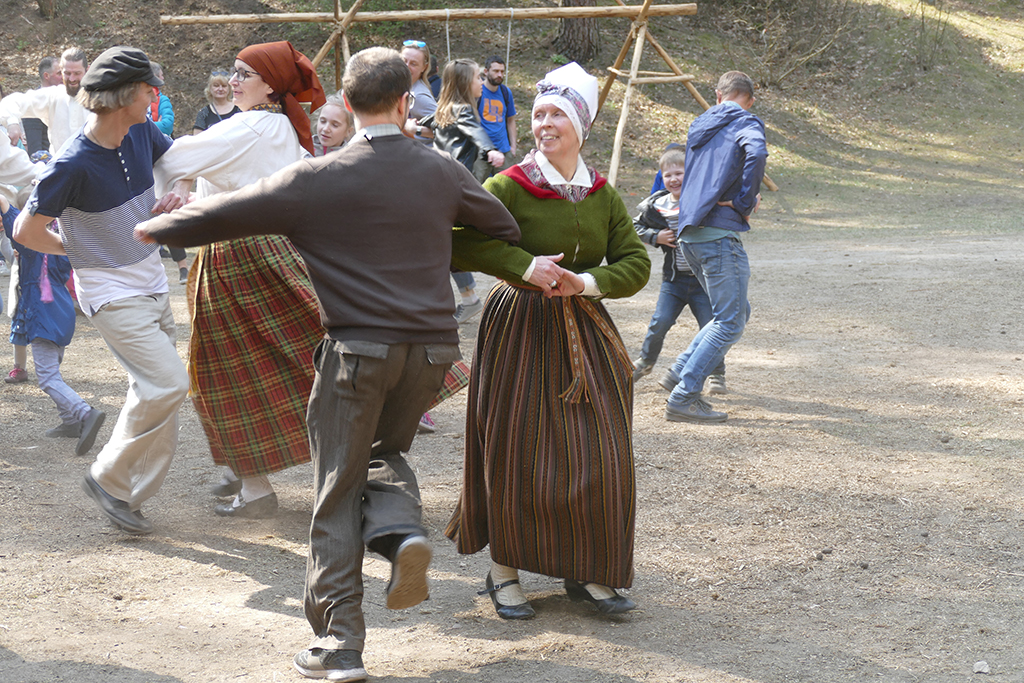
We were very lucky to visit on Easter when a big traditional market was on which allowed us to witness how Latvians are celebrating their culture by singing and dancing, eating and playing – everyone was having a great time.
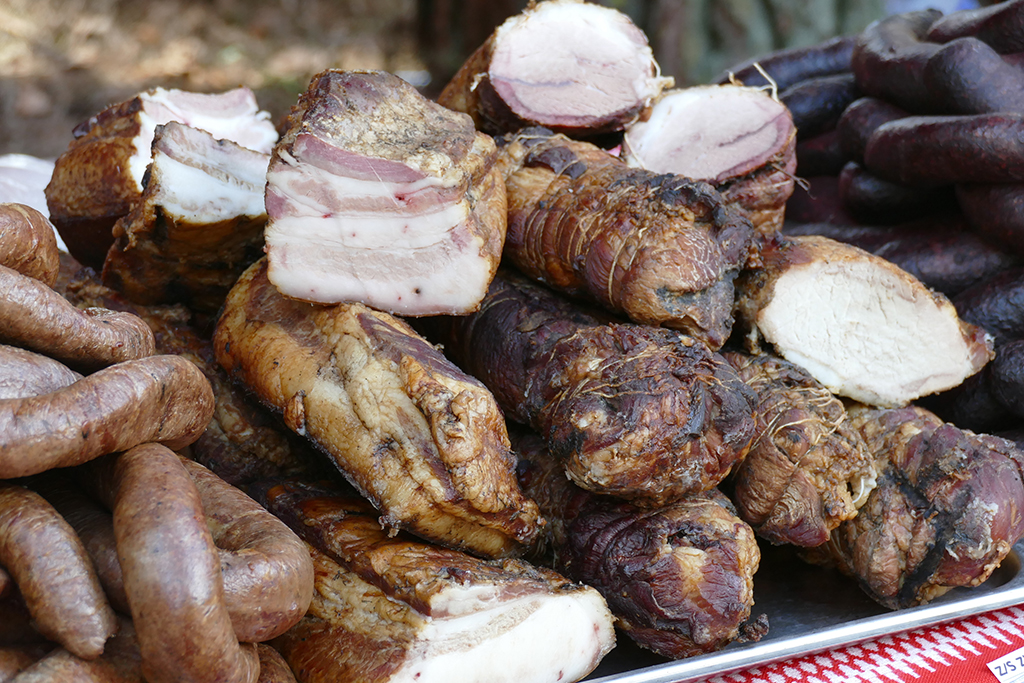
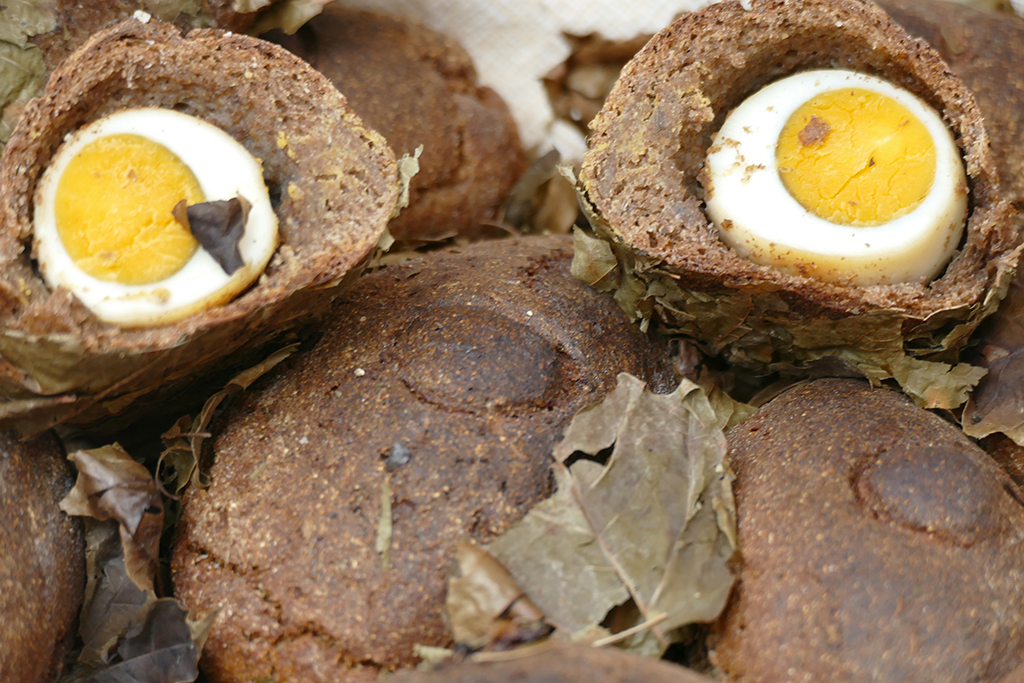
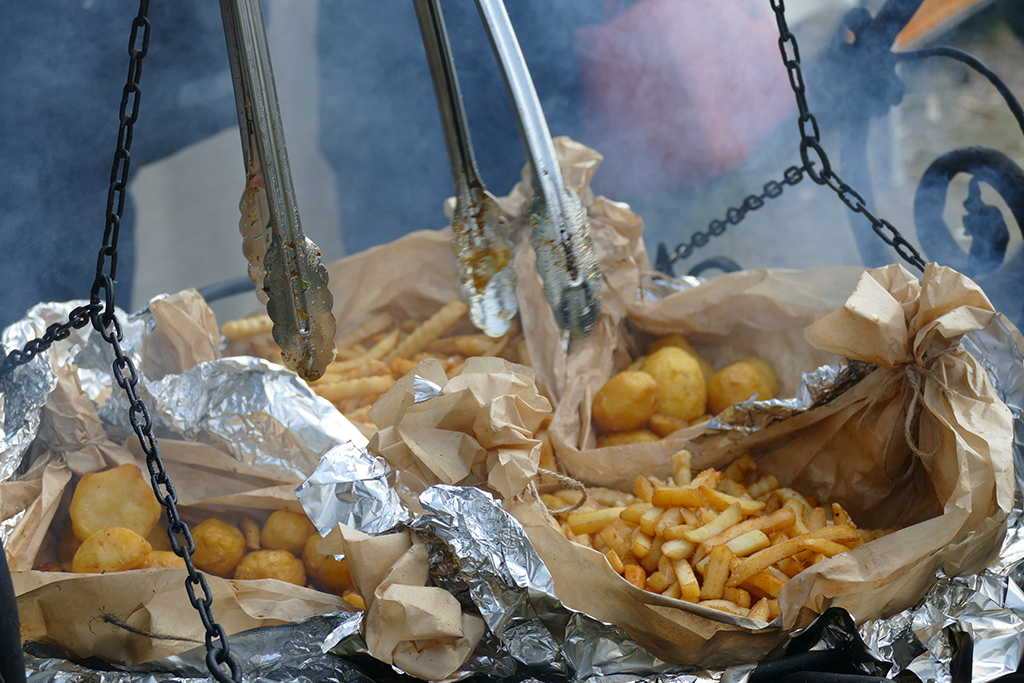
Strangers in the Night
After strolling through the small woods and over the meadows, we got to a small farm. A middle-aged man was sitting on the doorstep amidst an array of beautiful, obviously handmade ceramic goods. As we approached him, he grabbed a small ceramic flute and intoned Strangers in the night. He did not only give us a taste of his talent, but he also played the entire song…I would even say it was an extended version.
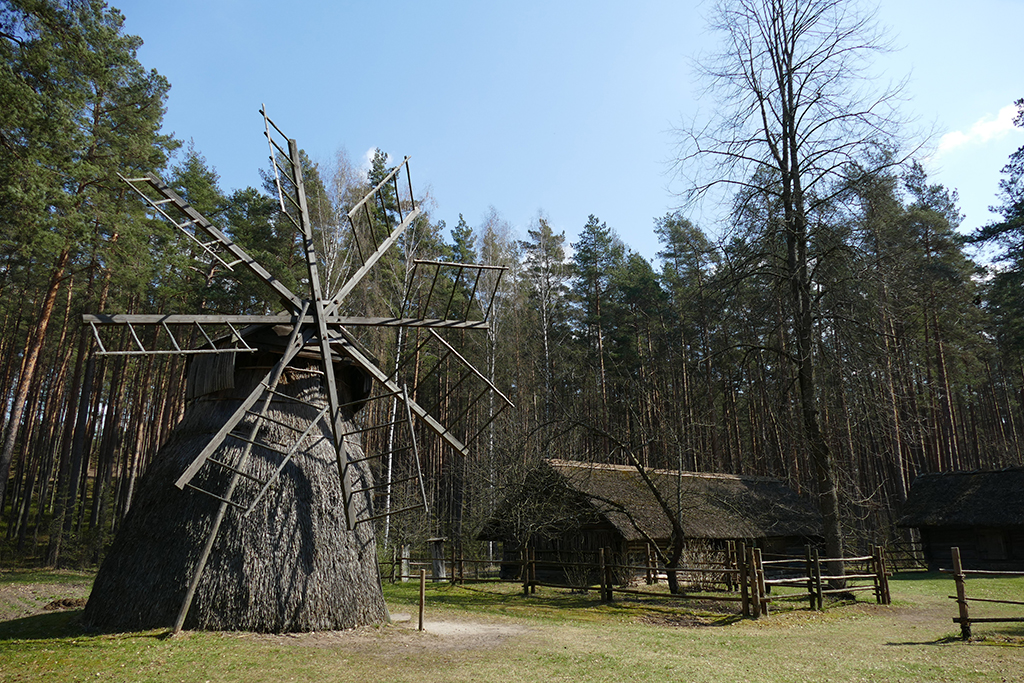
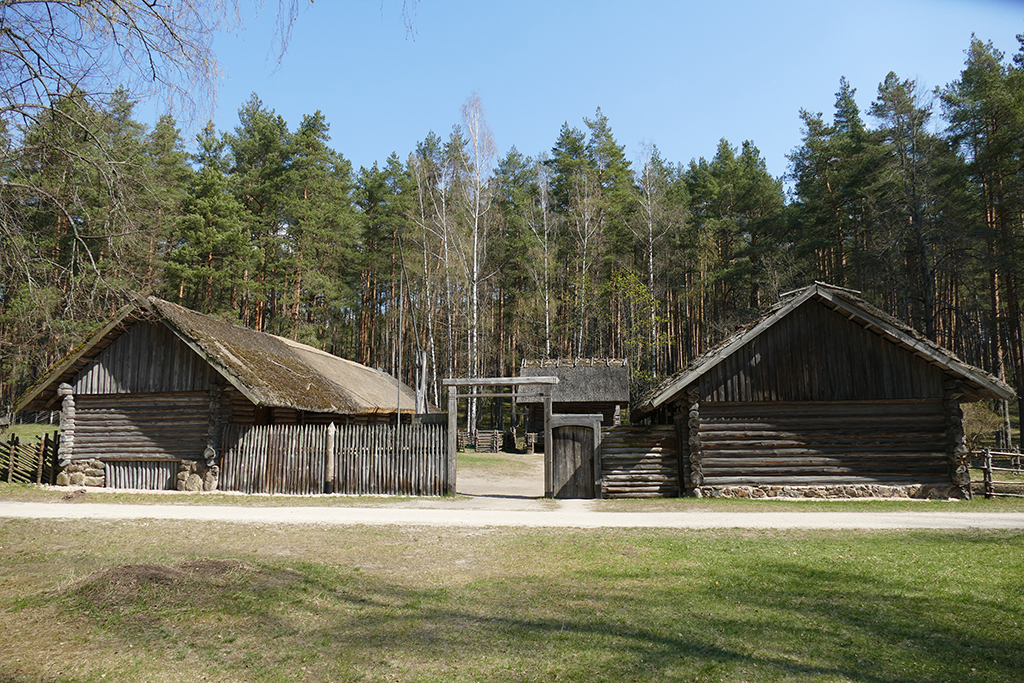
We bought the most beautiful ones of his cups and saucers and I kept humming Strangers in the Night for the rest of the day; very much to Mimi’s chagrin.
As we finished our tour, we took seats on one of the rough wooden benches and ordered from a waiter speaking with an almost caricaturish British accent potato fritters with pickles and sour cream.

We were amazed at how reasonably priced the food is here, but then we realized again that this is not some sort of Disney world for foreign tourists, but a place where Latvians get informed about their history and its value. We were paying local prices.
Latvian Ethnographic Open-Air Museum
Brīvdabas iela 21
Rīga, LV-1024
Phone: + 371 – 67 99 41 06
Email: info@brivdabasmuzejs.lv
More History
If you are interested in learning more about Latvia’s history, I recommend a visit to at least one of these two museums:
National History Museum of Latvia
Brīvības bulvāris 32,
Rīga, LV-1050
Phone: + 371 – 67 22 13 57
Email: museum@lnvm.lv
The museum is open Tuesday to Sunday from 10 a. m. till 5 p. m.
Museum of the History of Riga and Navigation
alasta iela 4
Rīga, LV-1050
Phone: +371 – 67 35 66 76
Email: direkt@rigamuz.lv
The museum is open daily from 10 a. m. till 5 p. m.
Practical Information
How to Get There
There are a couple of airlines serving Riga’s international airport including Latvia’s national one, air Baltic.
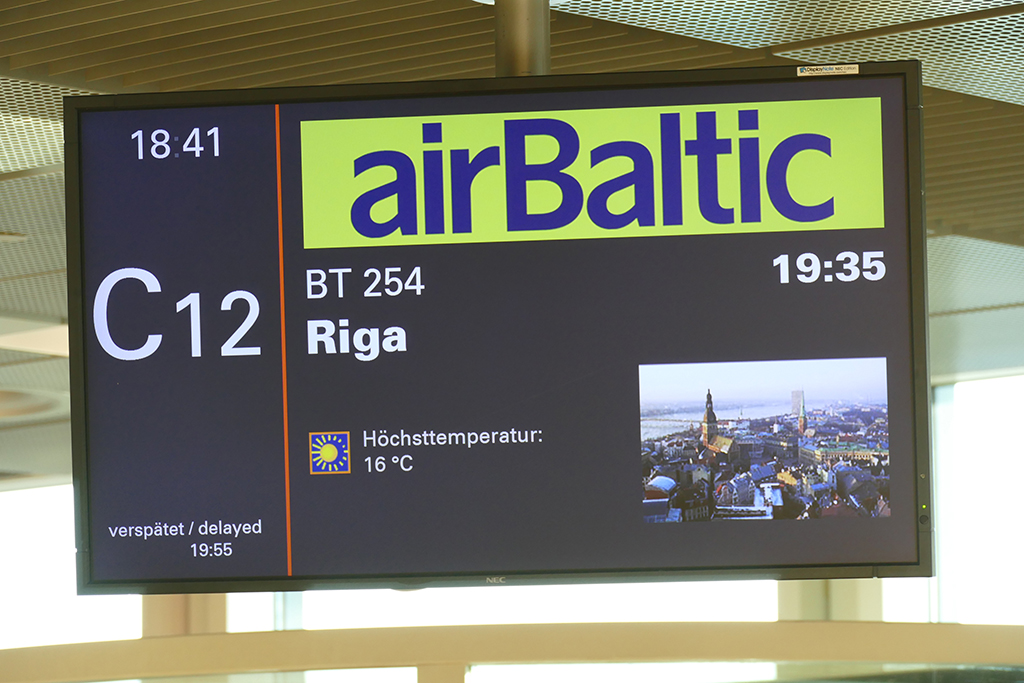
A cab from the airport to the city center should cost you about 15 €uros. However, the bus system in Riga is very reliable, and bus number 22 is running between 5.40 a. m. and 11.20 p. m. and sets you back only 2 €uro.
Of course, Riga has also a train station. However, travelling by bus is pretty comfortable. The long-distance busses are clean and punctual and almost equipped like planes with reclining seats and a great entertainment program. On our way from Tallinn to Riga, which took only four hours, we were able to listen to the latest hits and watch films that made it to the movie theaters only recently; and all this for about 15 €uros.

If you are planning on travelling within Latvia or paying the other Baltic states a visit, make sure to check out their schedules and offers.
Ecolines
Prāgas iela 1 (Riga International Coach Terminal)
Phone: +371 – 67 21 45 12
Email: info@ecolines.lv
How to Get Around
As stated above, public transportation in Riga is as excellent as in any other European city. Although there is no subway, the tram is great and even the many busses are very reliable.
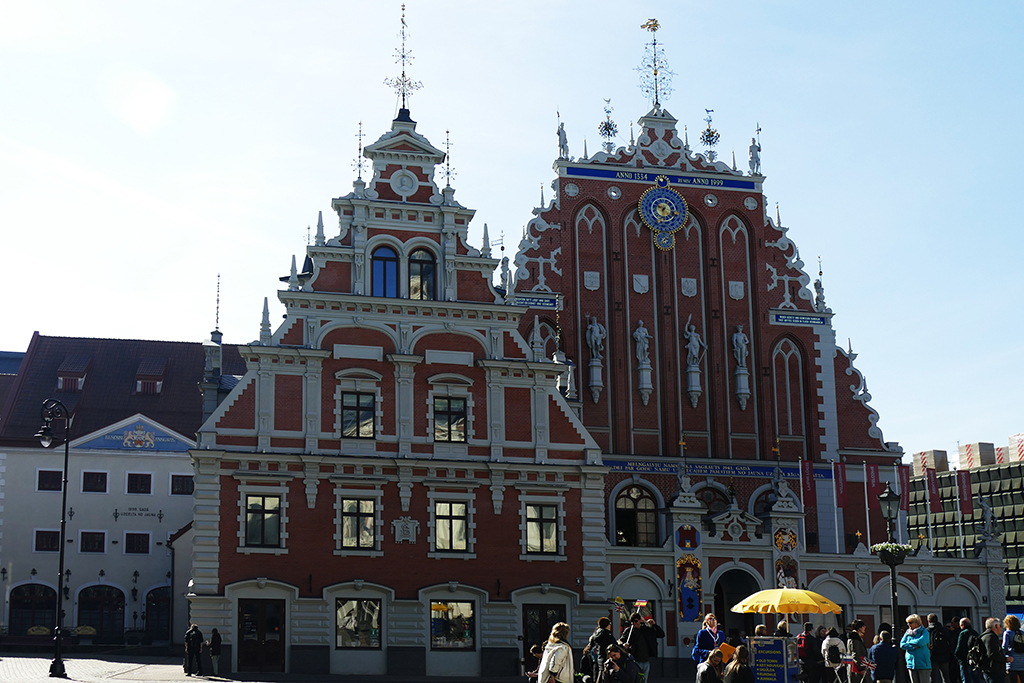
You can buy your ticket from the driver which is a bit more expensive. Therefore, a better option is to get them at the machines that you’ll find at many stops. Here you can also buy a couple of tickets in advance and validate them only as you need them – in case you need to take the bus at a stop where there’s no machine.
There is a day pass for public transportation that you can get at the tourist information
Like in many other European cities, there are also bike rentals all over the city, e.g. by the car rental company Sixt and Riga Bike Rent.
Where to Stay
You can book all kinds of accommodation in Riga, okay-priced in the city center and very reasonable in the outskirts.
Since we arrived quite late and had then an early morning flight back, we opted for staying halfway between the airport and the center. This turned out to be the perfect location: 15 minutes downtown, 15 minutes to the airport.
We stayed at two different guest apartments that were very well equipped and maintained and cost us between 30 and 40 €uros a night.
If you like the location but prefer to stay at a hotel, there is the Rex Elephant* very nearby.
However, you can check out the availability and prices of other great lodging options on this map*:
Booking.comWhat to Eat
As I explained, the market is great to awe and browse and to get some fresh produce but it’s not worth the visit if you want to dine out.
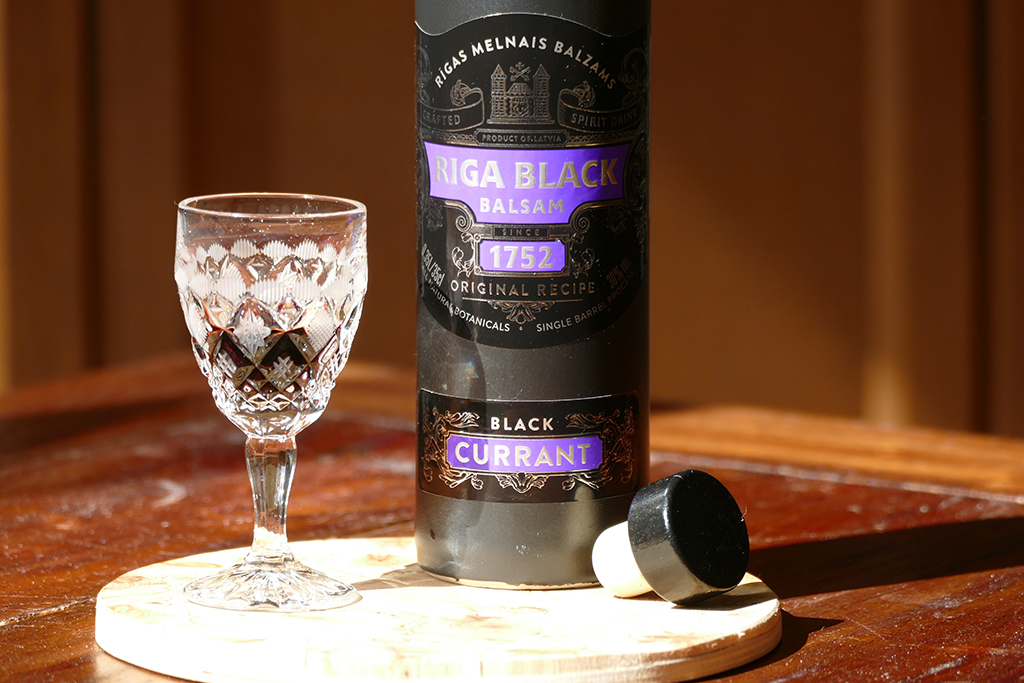
For this, we’d found the perfect place right in the city center: It’s a traditional, rustic, dark, and noisy restaurant in a cellar, stone walls, wooden chairs, benches, and tables, Latvian classics blaring from the speakers.
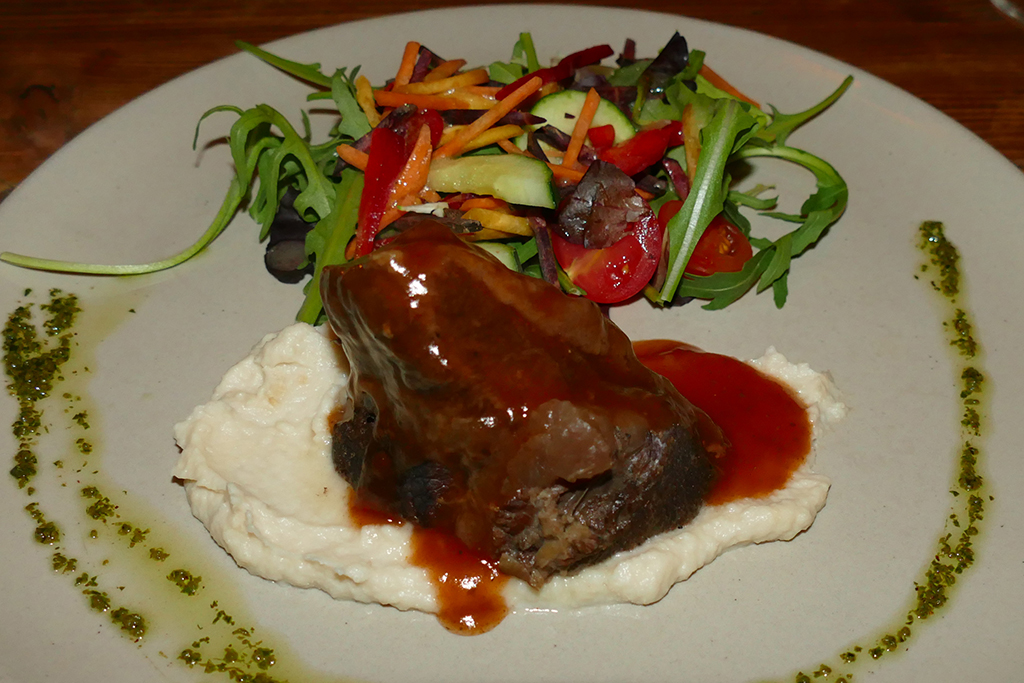
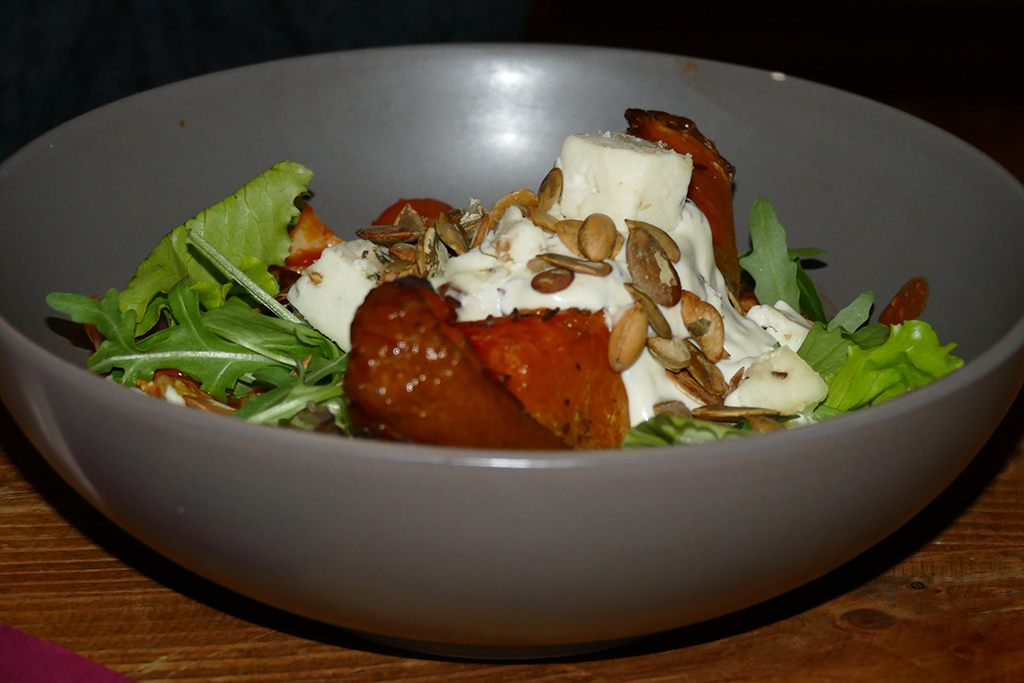
Friendly, English-speaking waiters bring you a quite small menu from which you can choose a variety of typical Latvian delicacies. Latvian cuisine at last! Latvian cuisine at its best!
Choosing the right beer with your food is almost more challenging than picking the right dish. There are so many great options!
Folkklubs ALA Pagrabs
Peldu iela 19
Rīga, LV-1050
Phone: +371 – 27 79 69 14
Open daily from noon till at least 1 a. m., from Wednesday to Saturday even till early morning.
What to Buy
The markets in the city center are quite nice and you find all kinds of woolen’n’wooden handcraft there.
Great Latvian things to shop for are wooden kitchen appliances and toys.
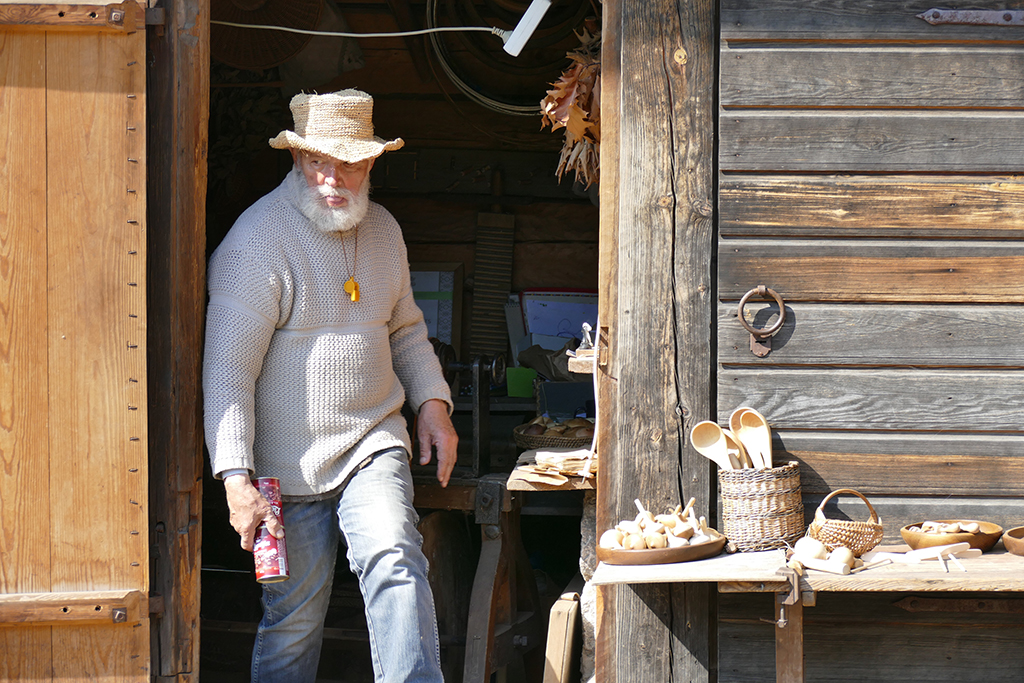
However, if there is something special on at the Ethnographic Museum, it’s totally worth going there. Although it’s about 30 minutes by bus, it’s a wonderful, serene place. Also, the handicraft at their stands was cheaper than anywhere downtown.
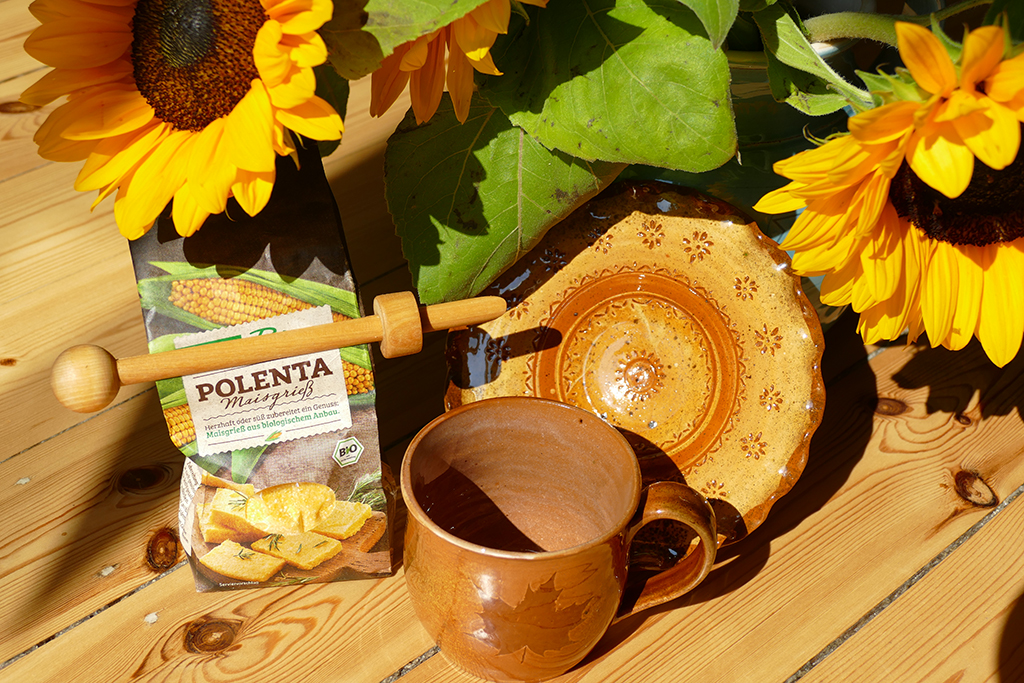
If you like to knit, you can get high-quality wool in beautiful colors at a really great price. I paid less than 3 €uro for a 100 grams ball. If you’re looking for a unique souvenir, they have these cute boxes containing wool, needles, and the pattern for a pair of mittens. These boxes come in many different styles, your biggest problem will be picking one. And in case you and your loved ones are all thumbs, you can just get the handmade mittens; and stockings; or shawls…
If you want to test your knitting skills, there are two great places to buy wool at the historic center:
Hobbywool
Mazā Pils iela 6
Rīga, LV-1050
Phone: +371 – 27 07 27 07
The store is open every day from 10 a. m. to 7 p. m.
Sundays only from 11 a. m. to 5 p. m.
Tines
Riharda Vāgnera iela 5
Rīga, LV-1050
Phone: +371 25 42 44 77
Tines is open every day from 11 a. m. to 7 p. m., Sundays only till 4 p. m.
Language
Most people speak Latvian – which might seem obvious, but is actually quite a big deal. During the Soviet hegemony, the language was pretty much banned.
During the Soviet policy of Russification, the percentage of Latvian sank from 80 to about 50 percent.
The Russian minority speaks, obviously, Russian, and especially the young people speak at least English as a third language. Will say, you’ll be fine.
Money
Until now, 20 European countries replaced their former local currency with the €uro starting in 2002. In 2014, Latvia, as a member of the European Union, replaced its previous currency lats with the €uro. The exchange rate is 1 US$ = 0.94 EUR as of January 2023. However, you can check today’s conversion rate on this page.
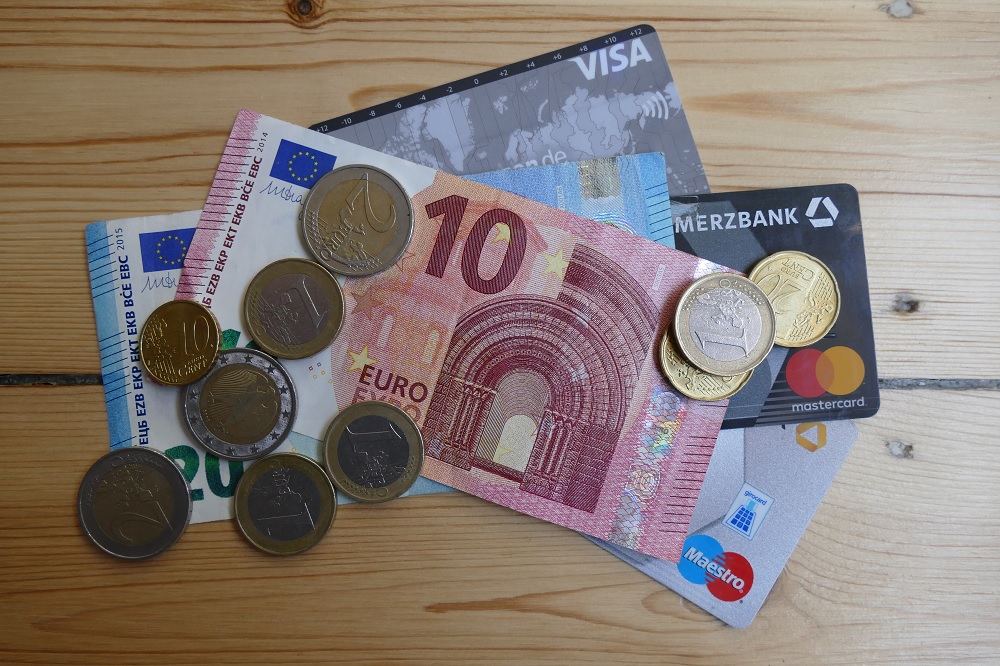
Credit cards are widely accepted, and you’ll find ATMs all over the place.
Tourist Information And Deals
It’s pretty amazing that there is a tourist information at Riga’s airport open 24/7. I’ve never seen this in any other city.
However, if you arrive really late, you might just want to go to sleep. Then, the next morning, you’ll have a fresh start in this entrancing city.
There you’ll find three more info centers. One is very centrally located at the Schwab House right next to one of Riga’s most famous landmarks, the House of the Blackheads.
Riga Tourist Information Centre
Rātslaukums 6
Riga
Phone: +371- 67 03 79 00
Email: info@rigatic.lv
At your disposal every day from 10 a.m. to 6 p.m.
Riga is not an expensive city so the Riga Pass does not seem to be such a great deal. It costs for 24 hours 25 €uros and 30 respectively 35 €uros for 48 or 72 hours.
The entrance fee to the permanent exhibition of the Latvian National Museum of Art is 3 €uro and to the Ethnographic Open-Air Museum 4 €uro, just to give you two examples. Therefore, spending 25 €uro in 24 hours seems like a big challenge to me.
Also, bus tickets are 2 €uro – or less when you buy them from a machine at the bus stop. But Riga isn’t that big and you’ll probably spend most of your day walking around.
As I explained, we didn’t even stay very close to the center and still had to buy only two or three tickets a day.
I’m an avid solo-travelling woman. Since solo-travel doesn’t equal solitude, I love to join organized tours here and there. They allow me to meet fellow travellers – for just a short moment or a lifelong friendship.
Especially if you have only a short time for exploring the city of Riga, an organized trip will enable you to make the best of it*:
Map
On this map, you’ll find all the wonderful places I’m introducing in this post.
Clicking on the slider symbol at the top left or the full-screen icon at the top right will display the whole map including the legend.
If you like this post and want to learn about another wonderful city in the Baltics, here’s a post about Tallinn, Estonia’s cool capital.
Pinnable Pictures
If you choose to pin this post, please use one of these pictures:
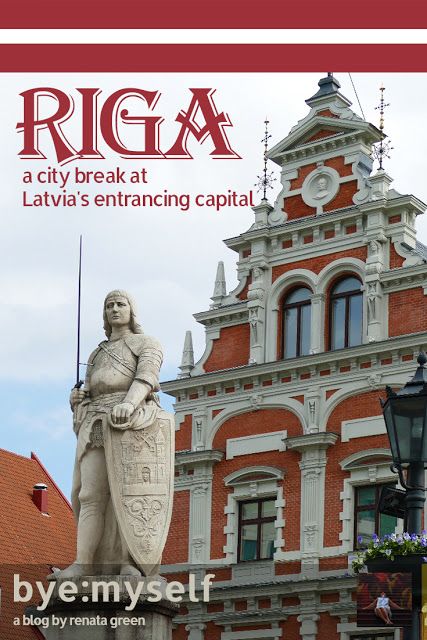
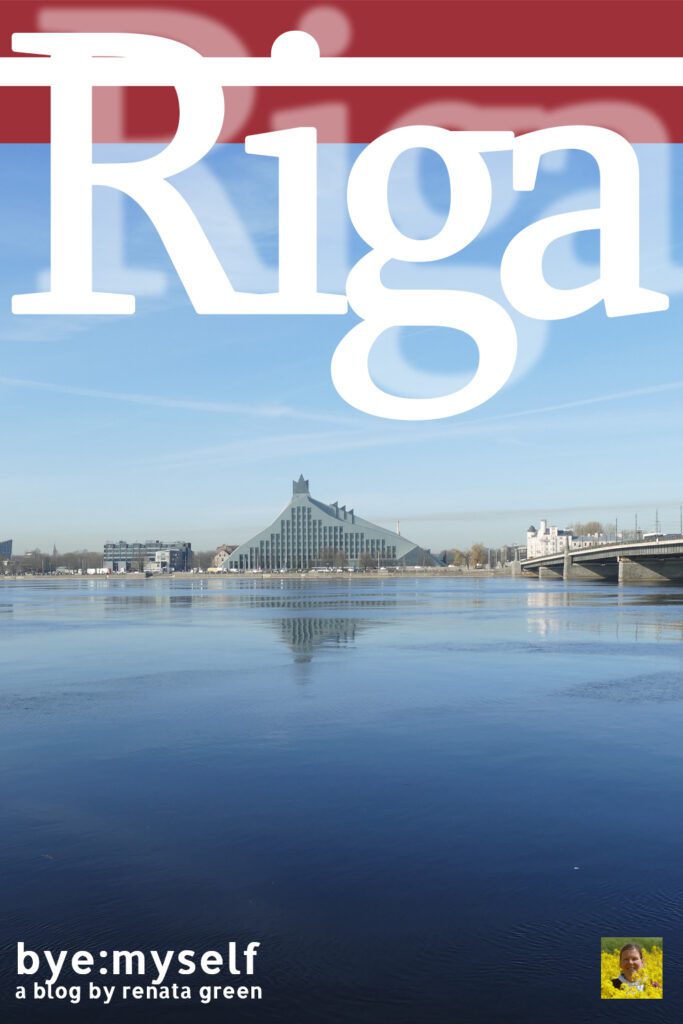
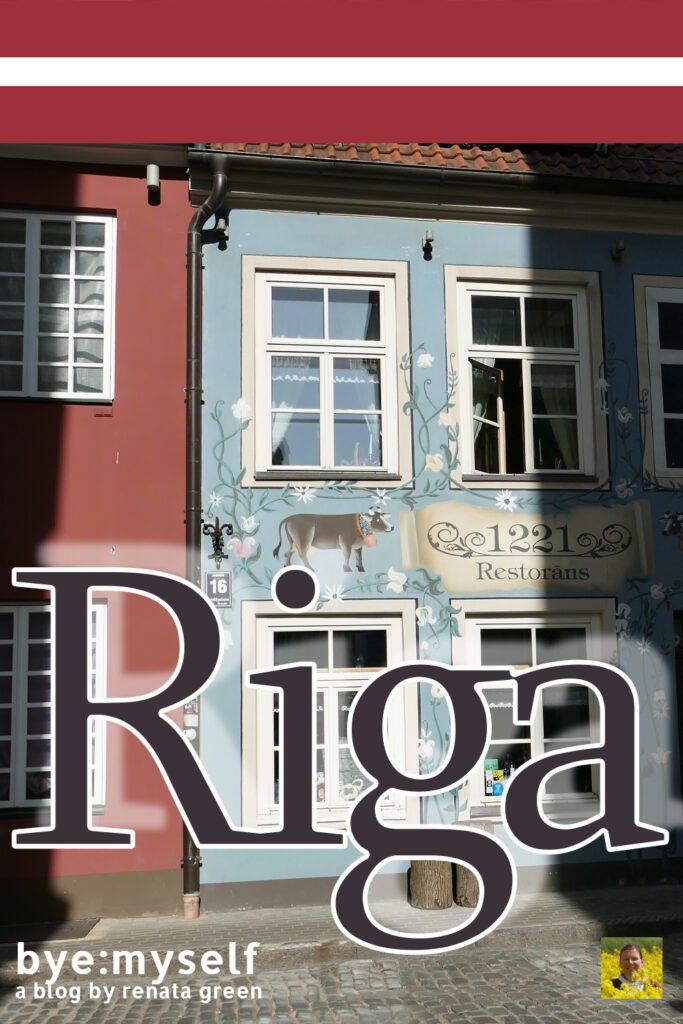
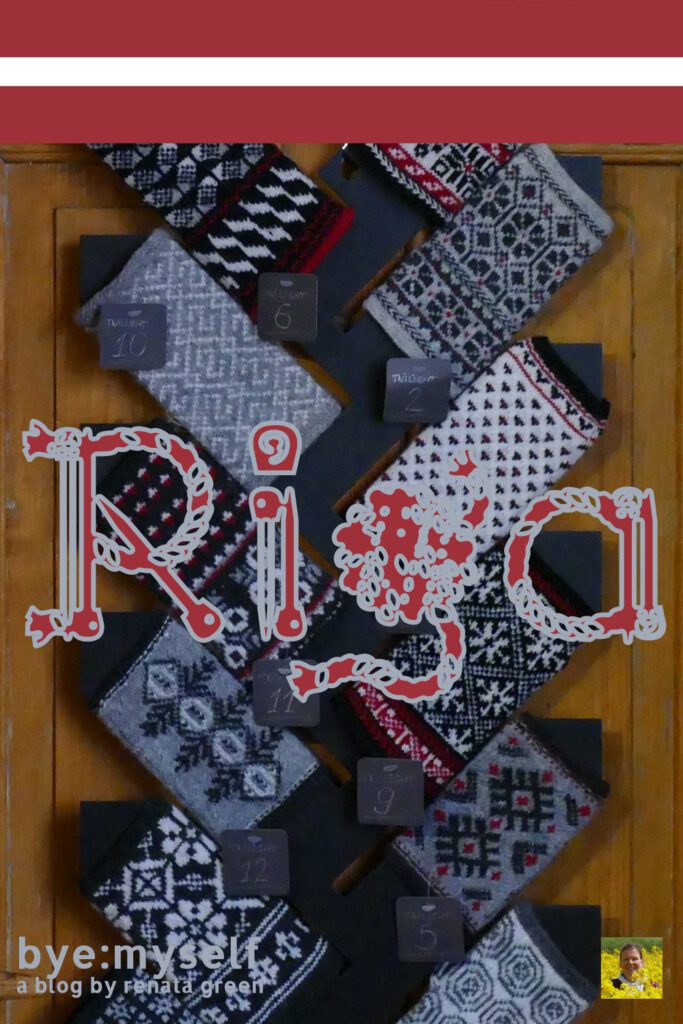
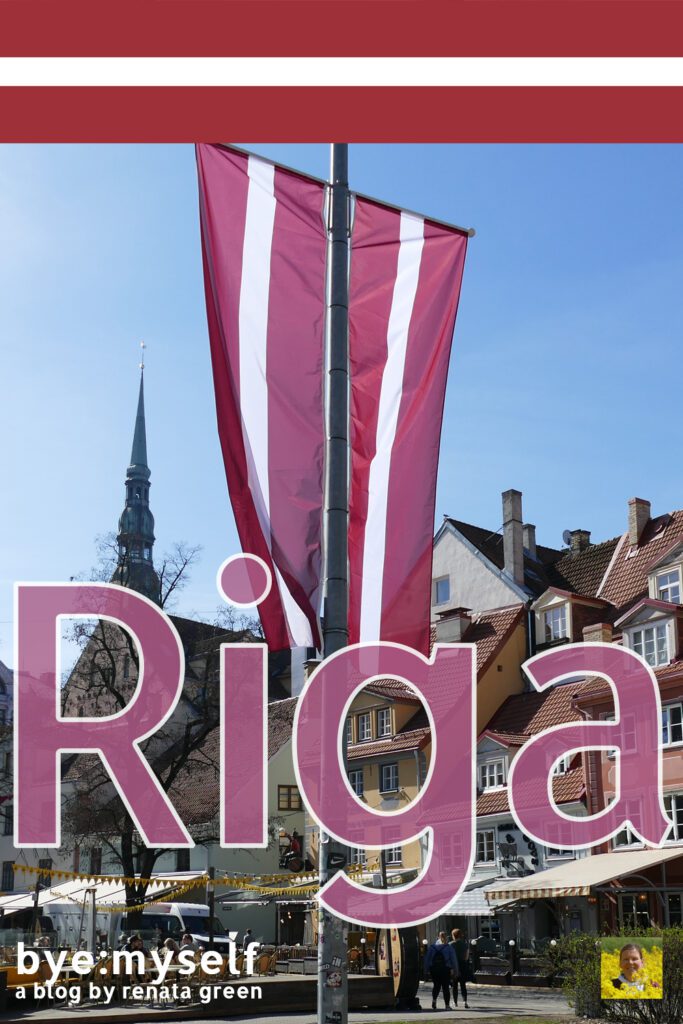
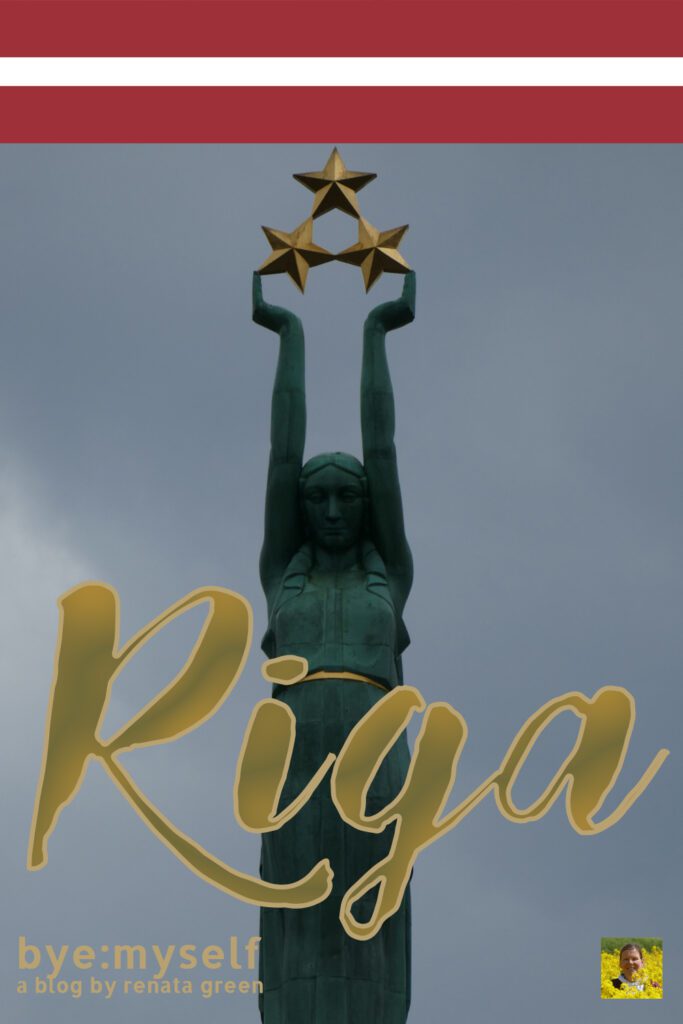
Note: I’m completing, editing, and updating this post regularly – last in January 2023.
Did You Enjoy This Post? Then You Might Like Also These:
Day Trip Into a Fairy Tale: Lake Bled by Public Bus
LJUBLJANA Mon Amour: What Not to Miss During Two Days in Slovenia’s Beloved Capital
24 hours in MILAN
Best Things to Do on a Long Weekend in Milan
How to Visit the Biennale di Arte in Venice in 2024
FRANCE: An Easy Circle Trip to the Five Best Cities to Visit in Provence
Two Days in MARSEILLE – What Not to Miss in the Belly of France
Best Things to Do in AIX-EN-PROVENCE in One Day
* This is an affiliate link. If you book through this page, not only do you get the best deal, I also get a small commission as a help to run this blog. Thank you so much for your support!
